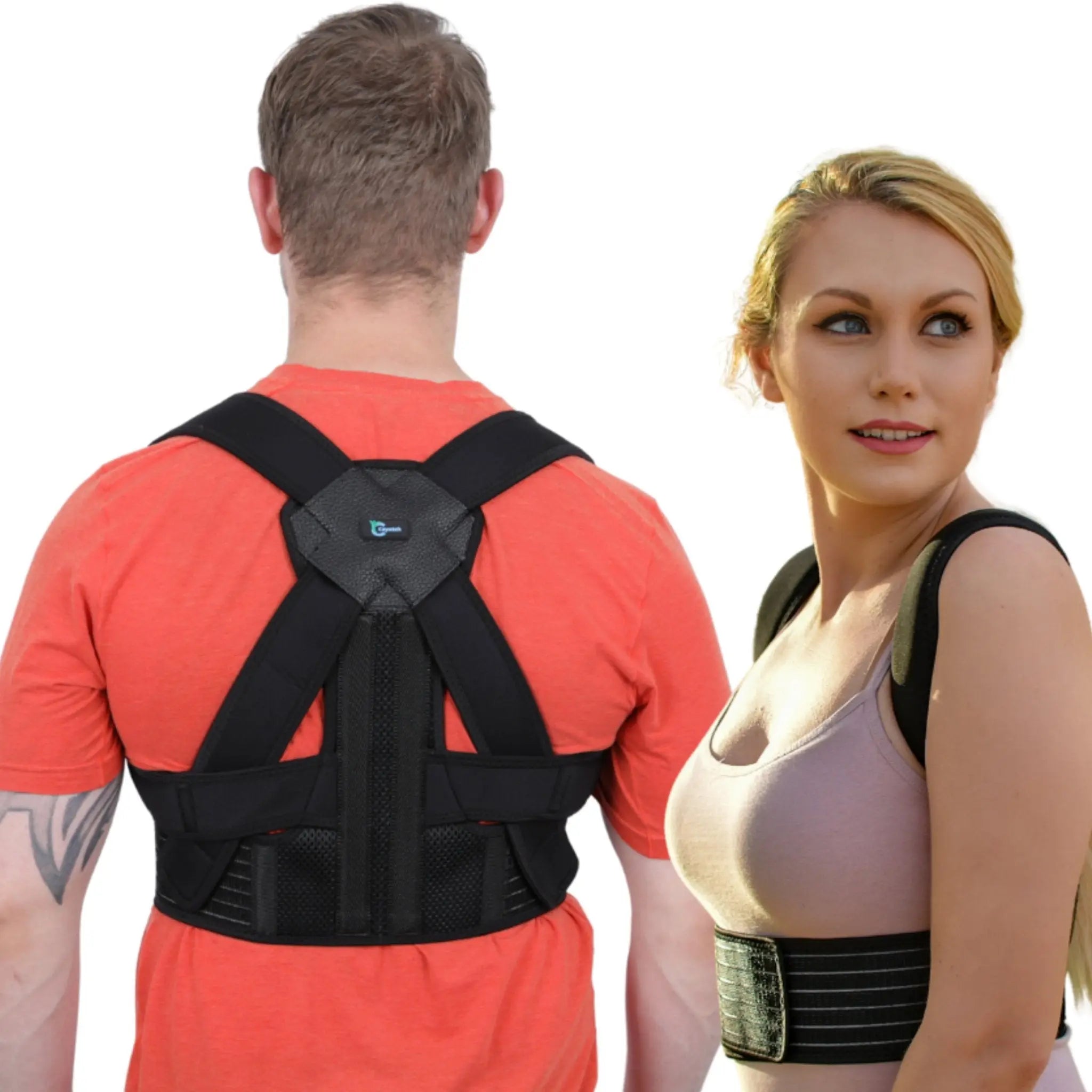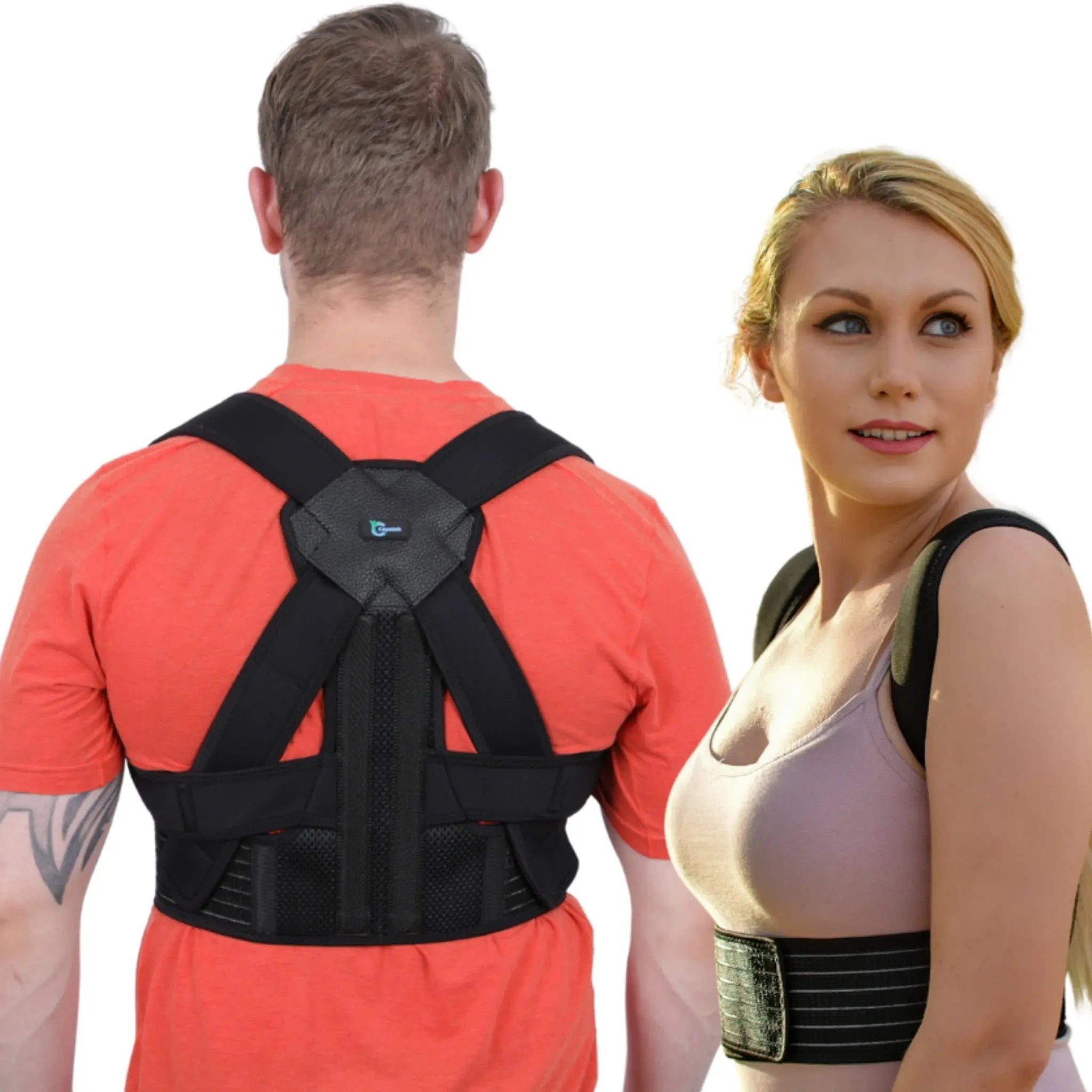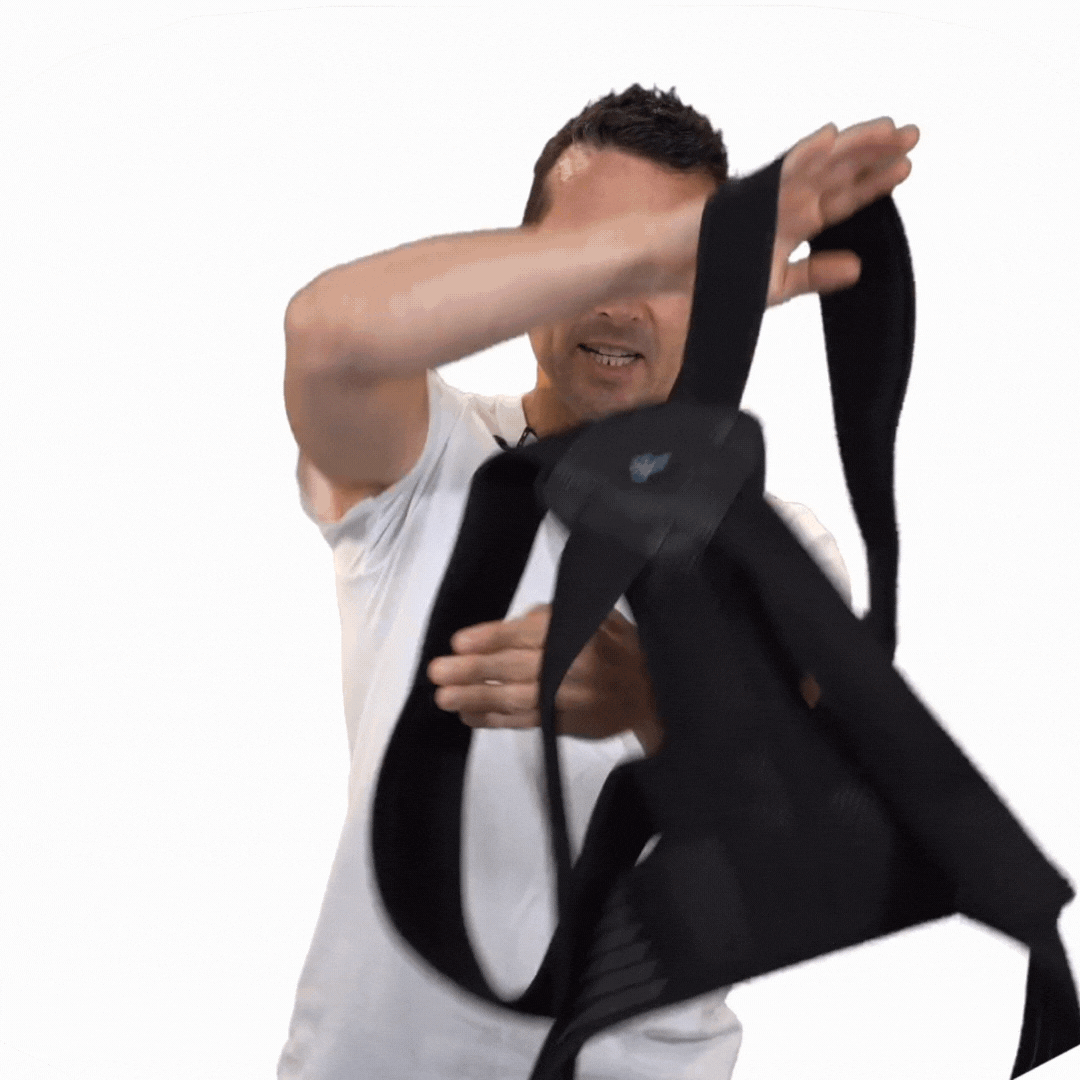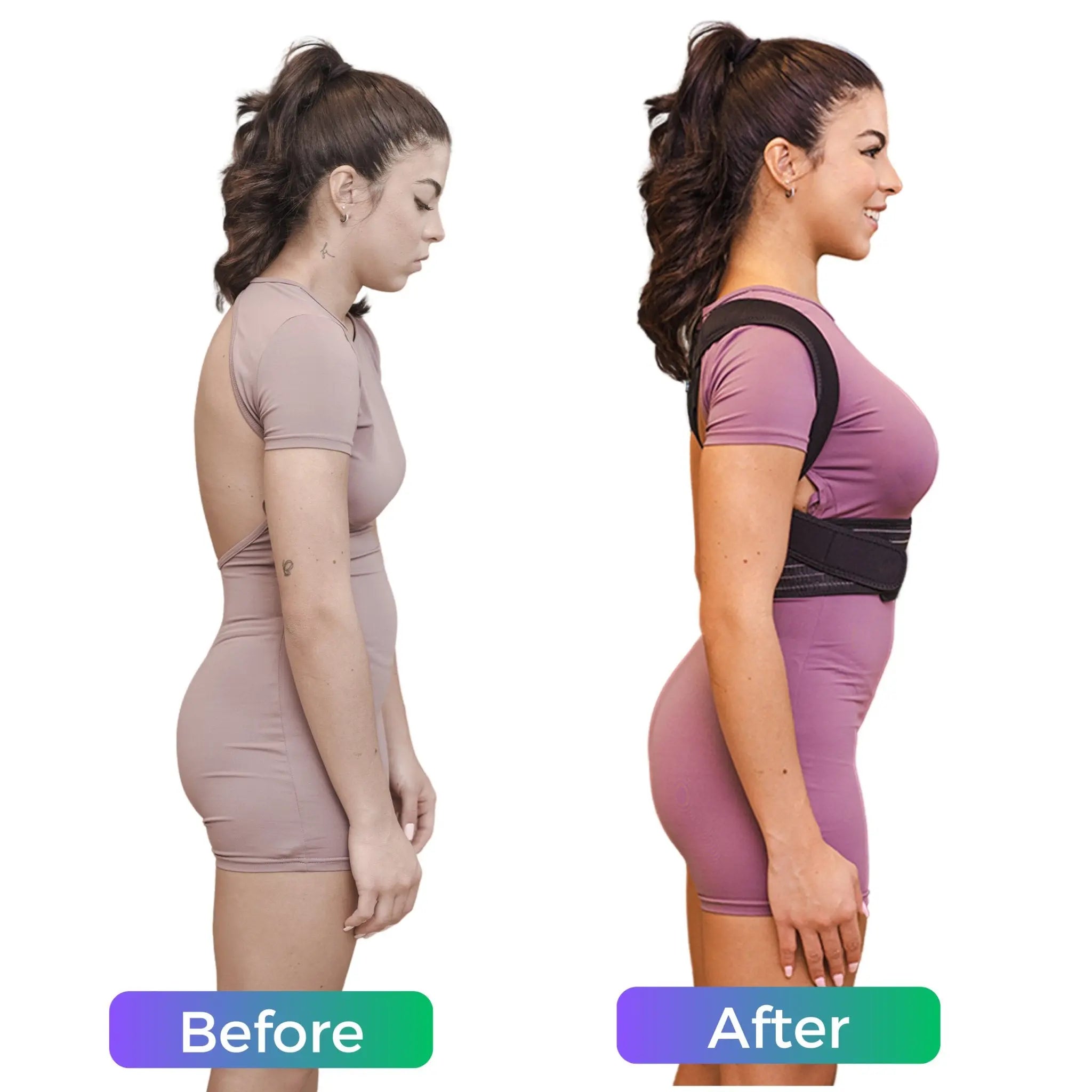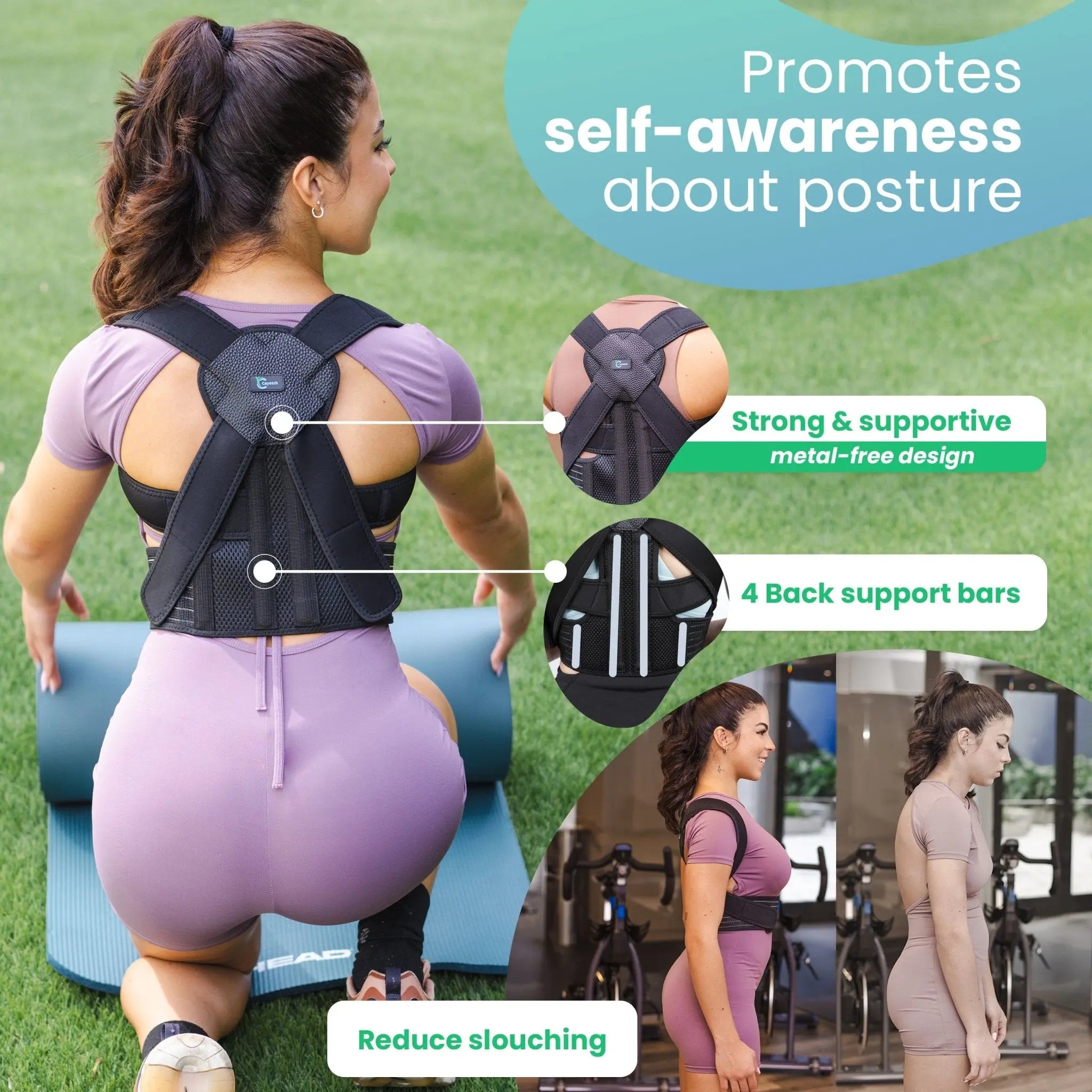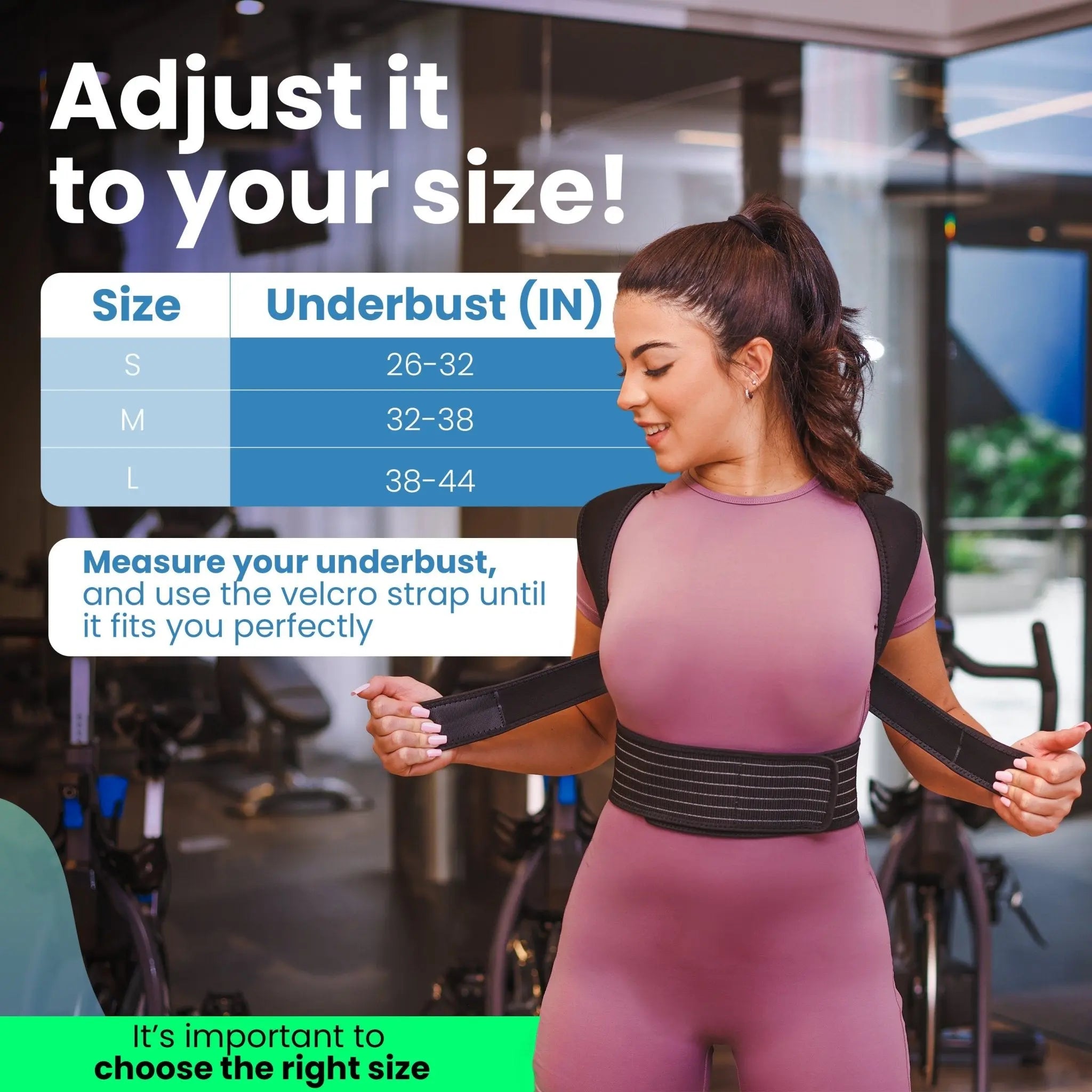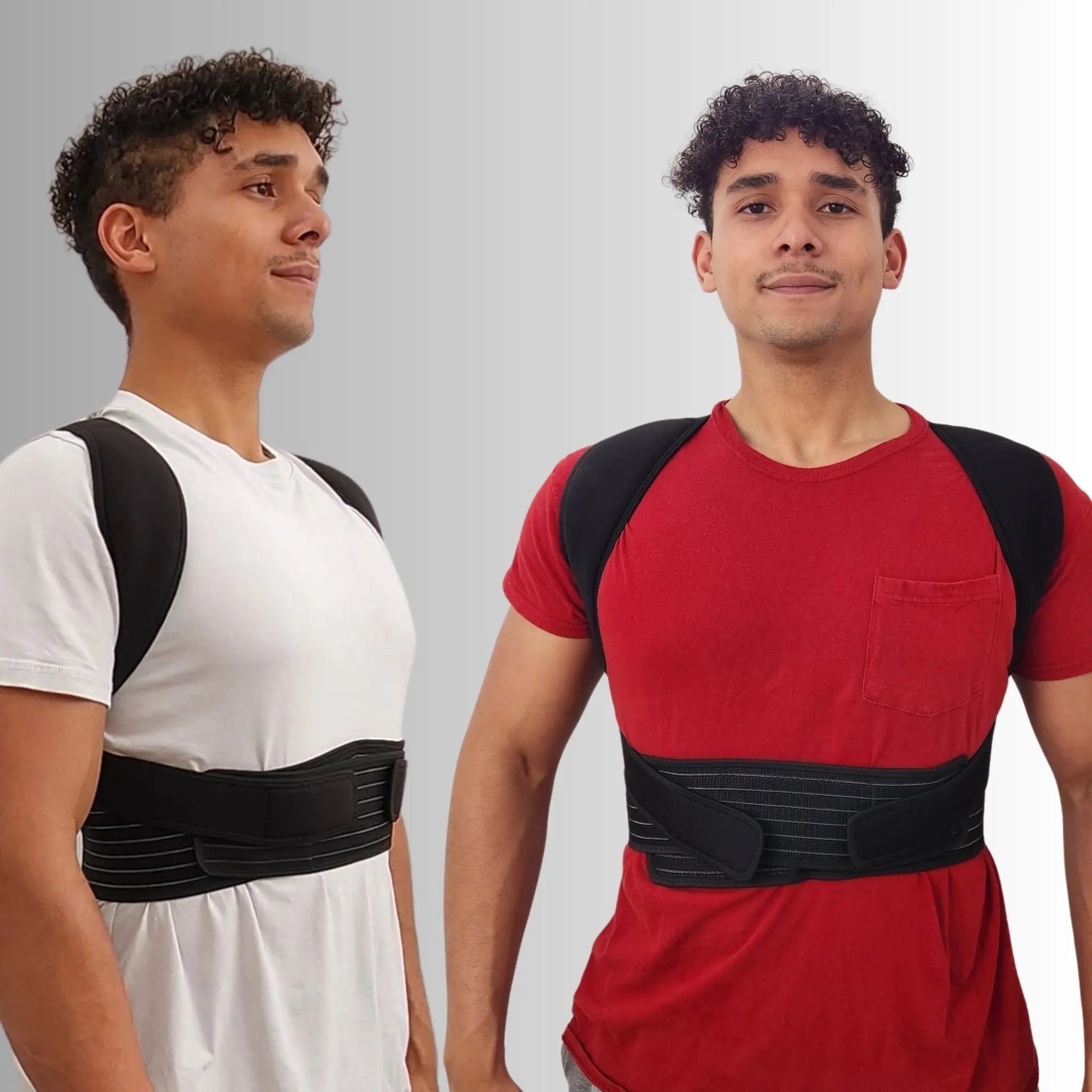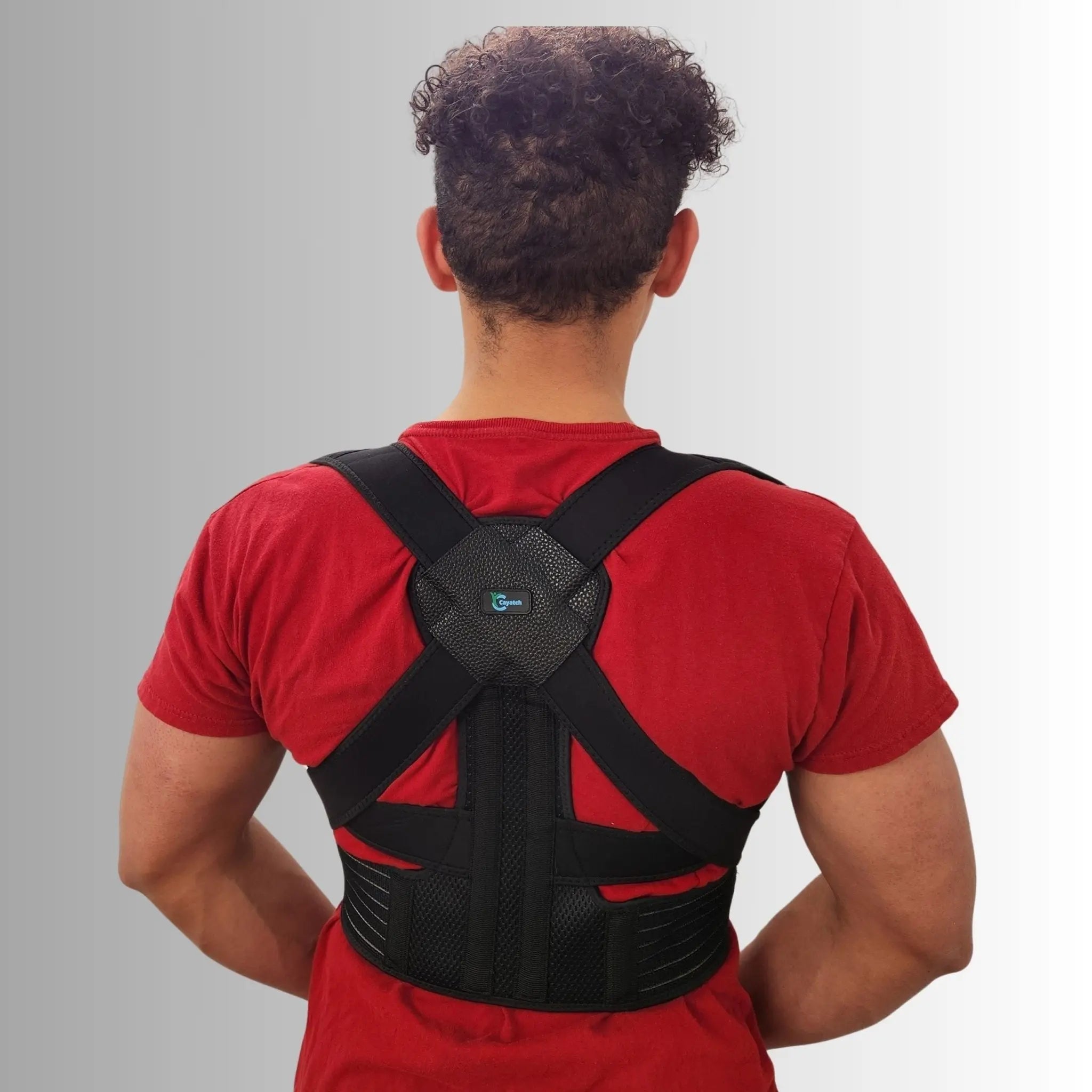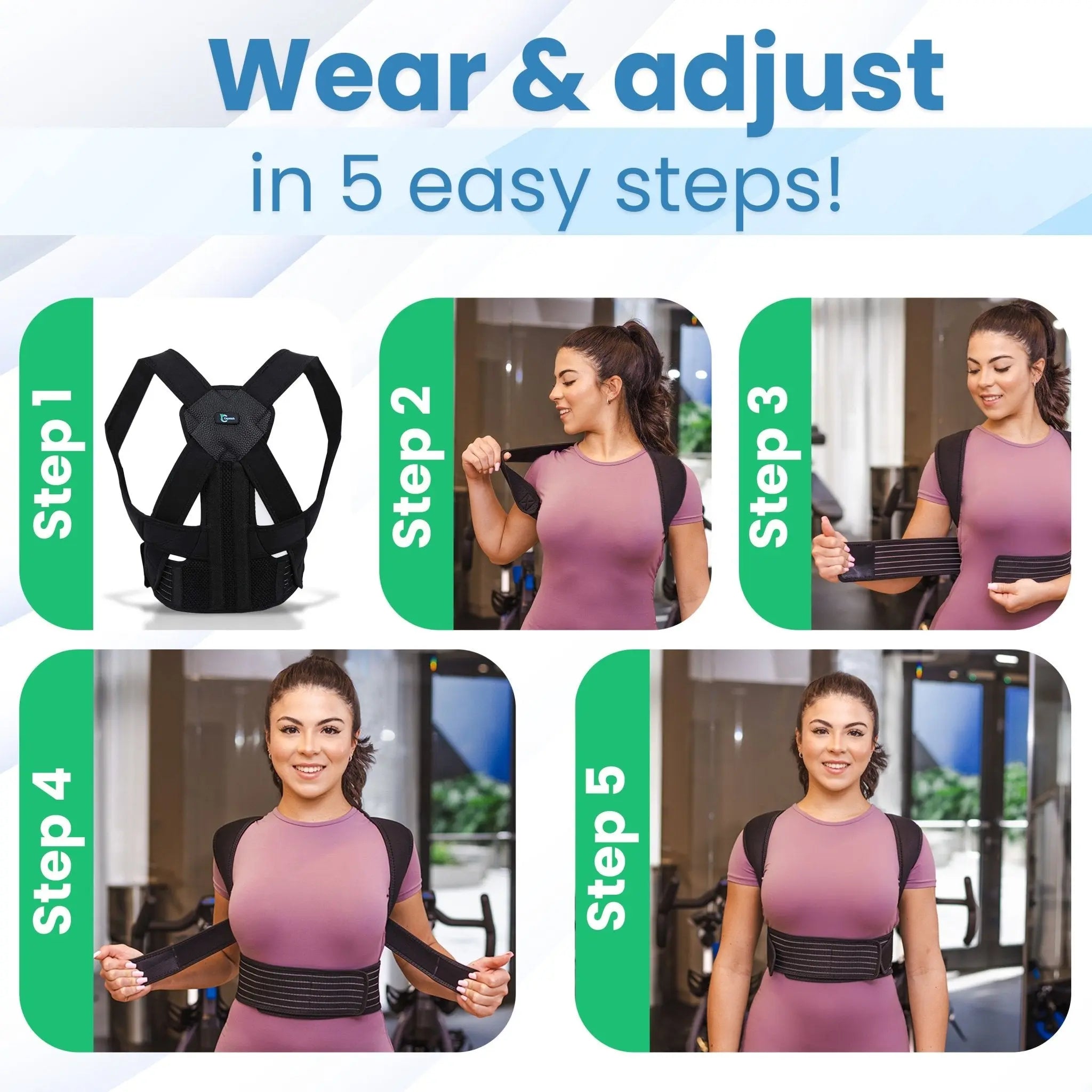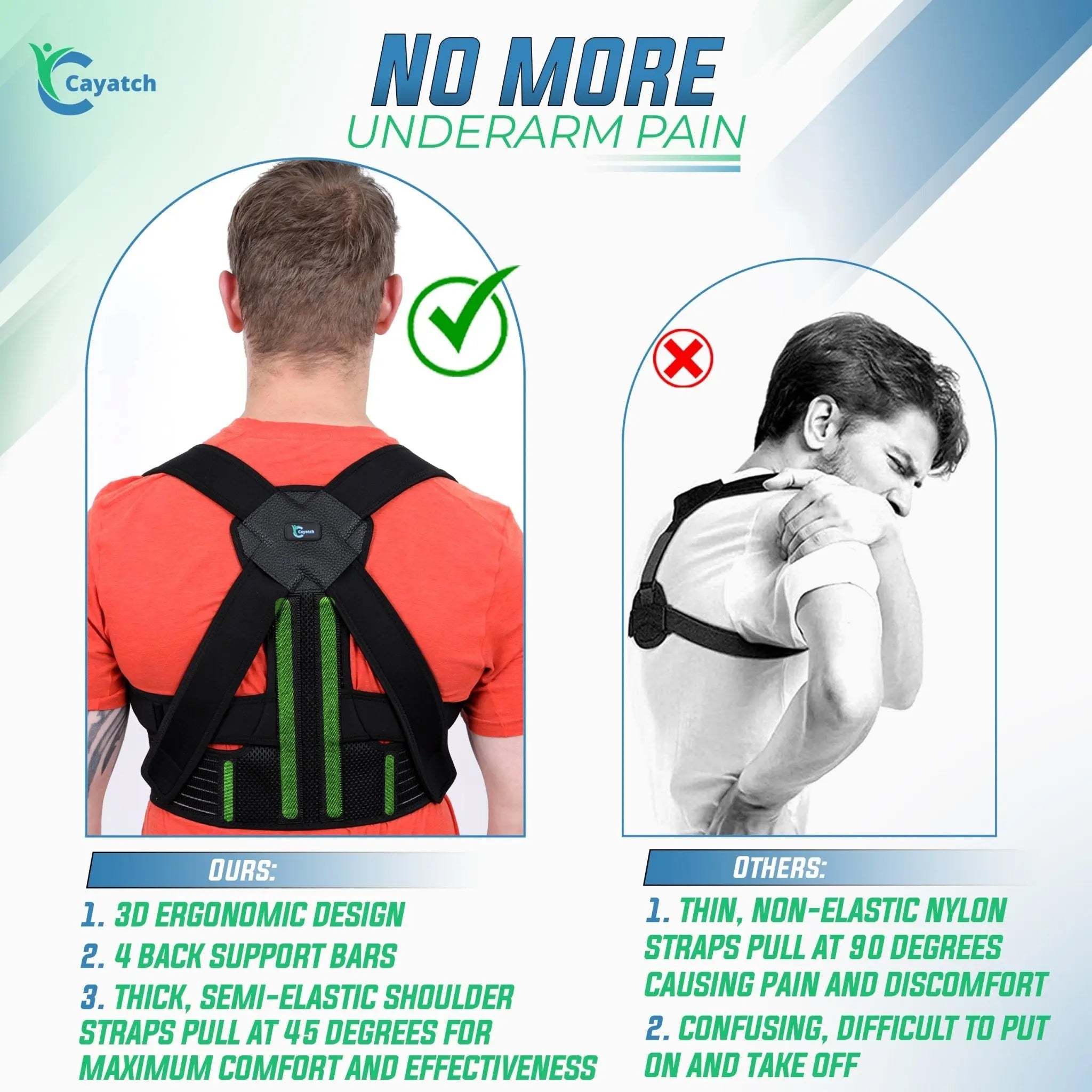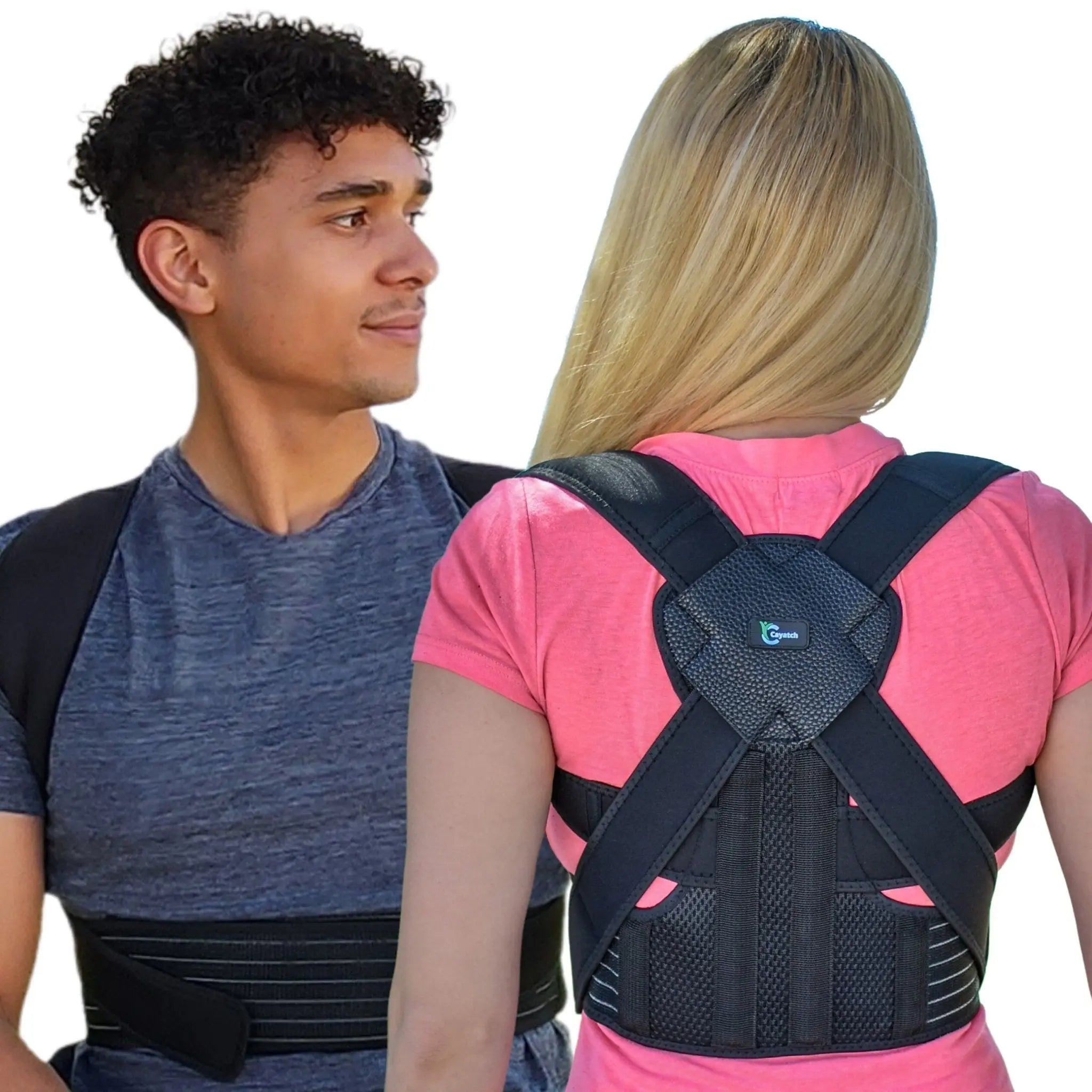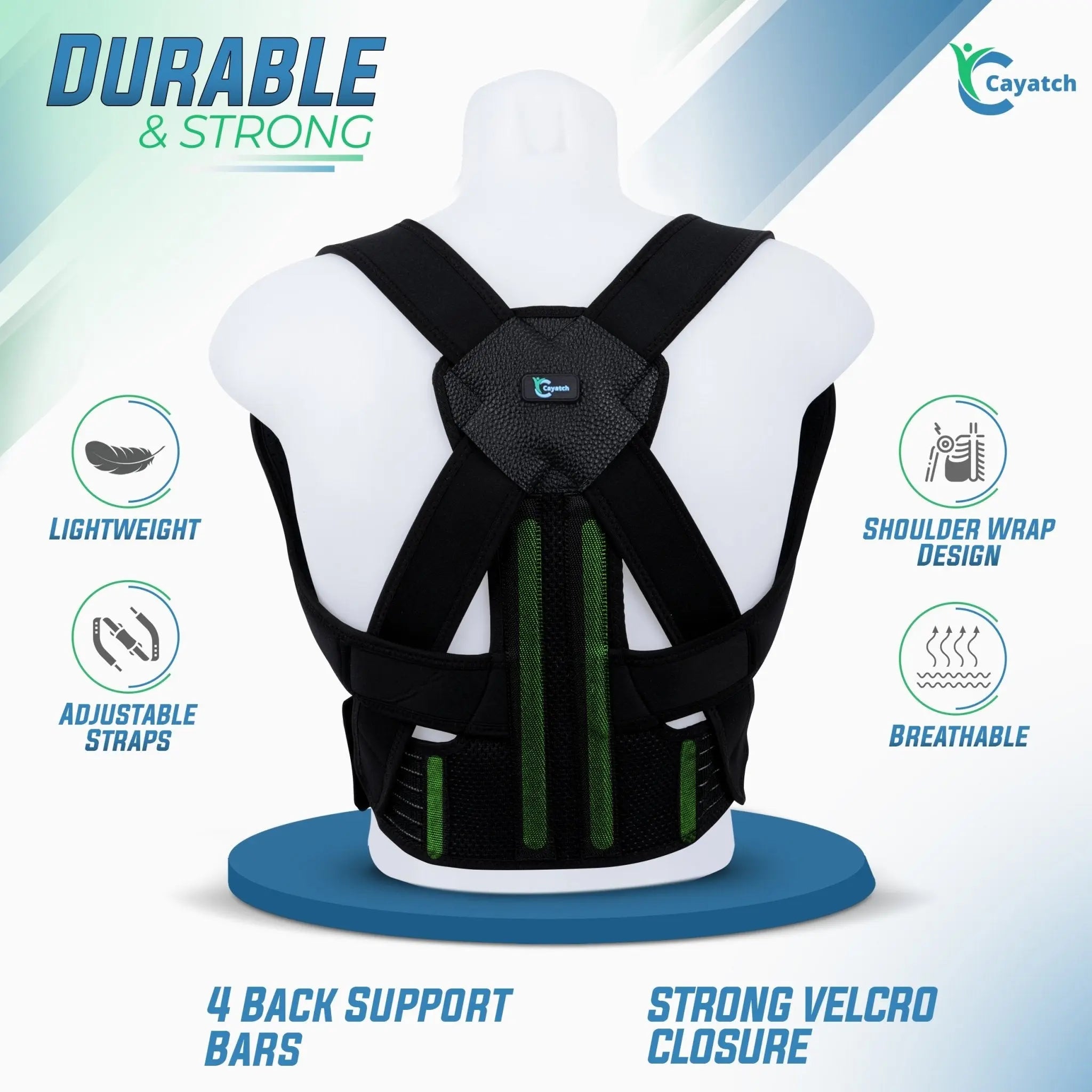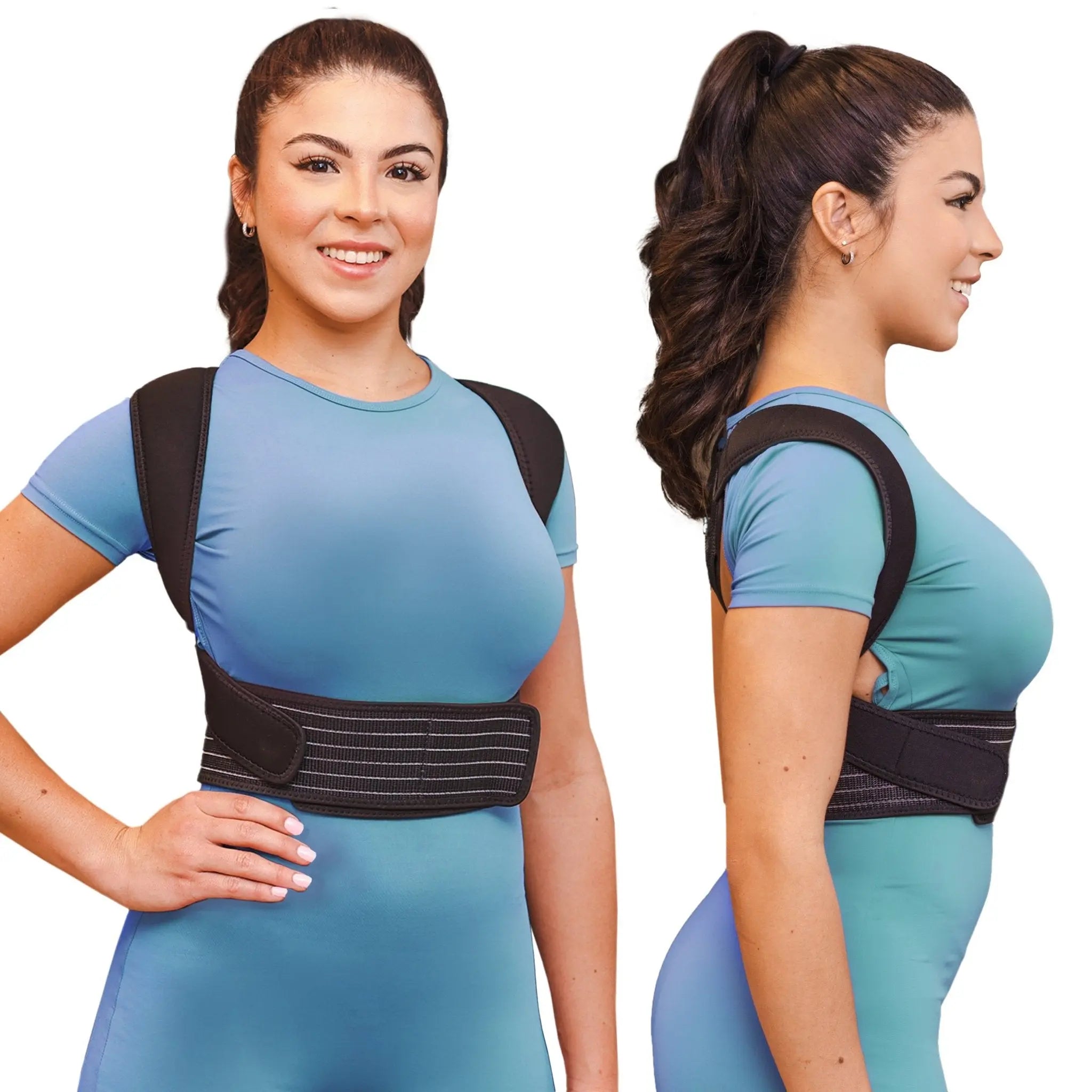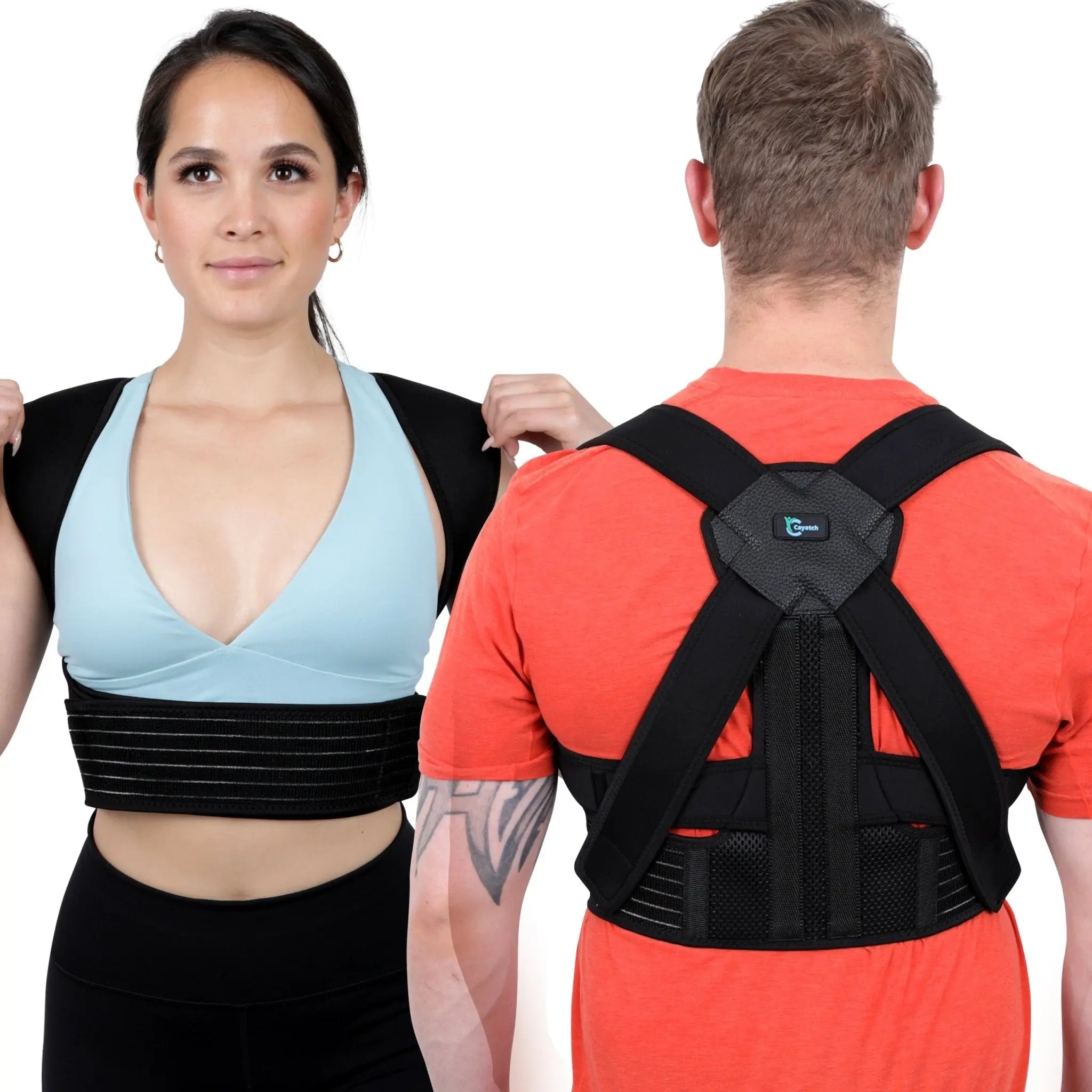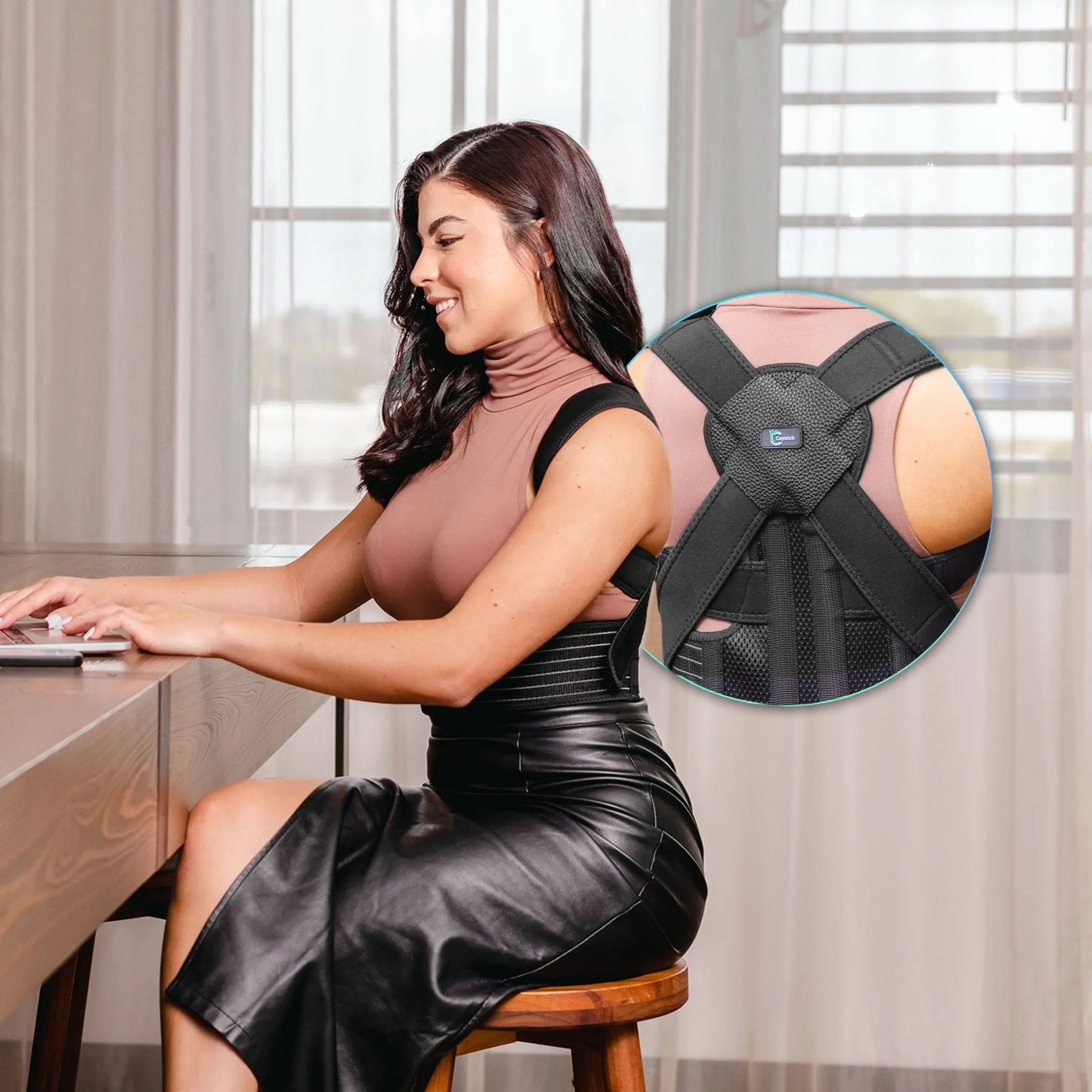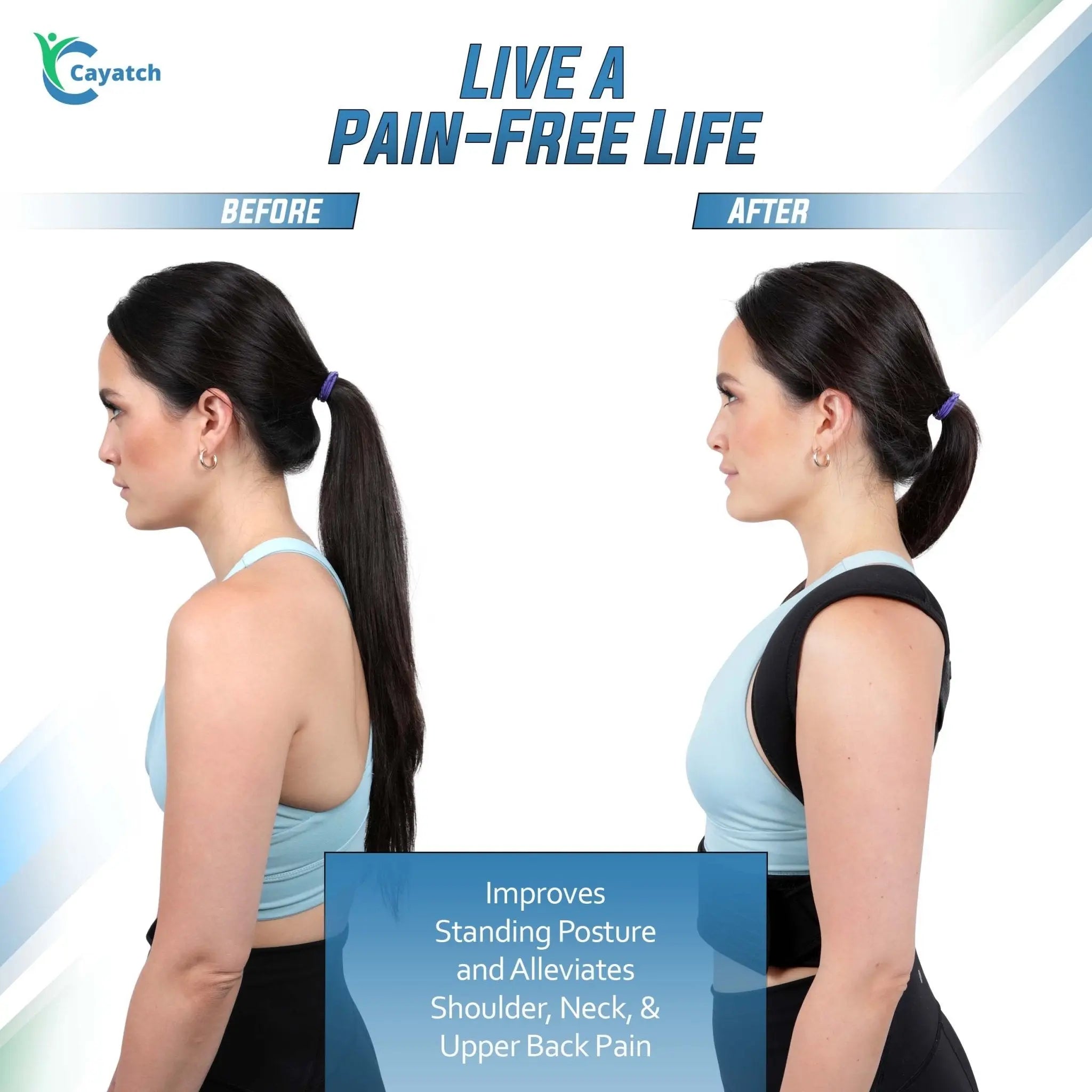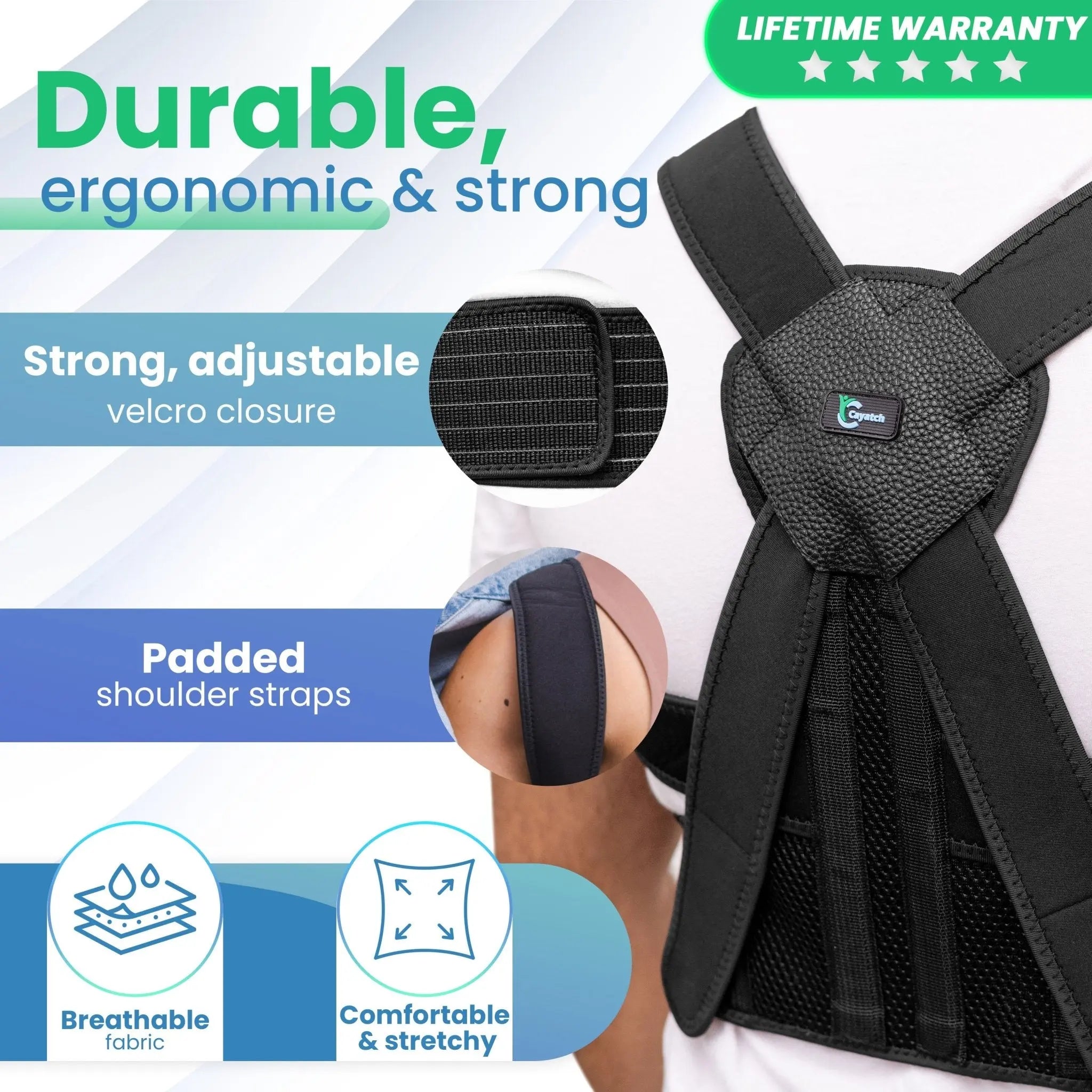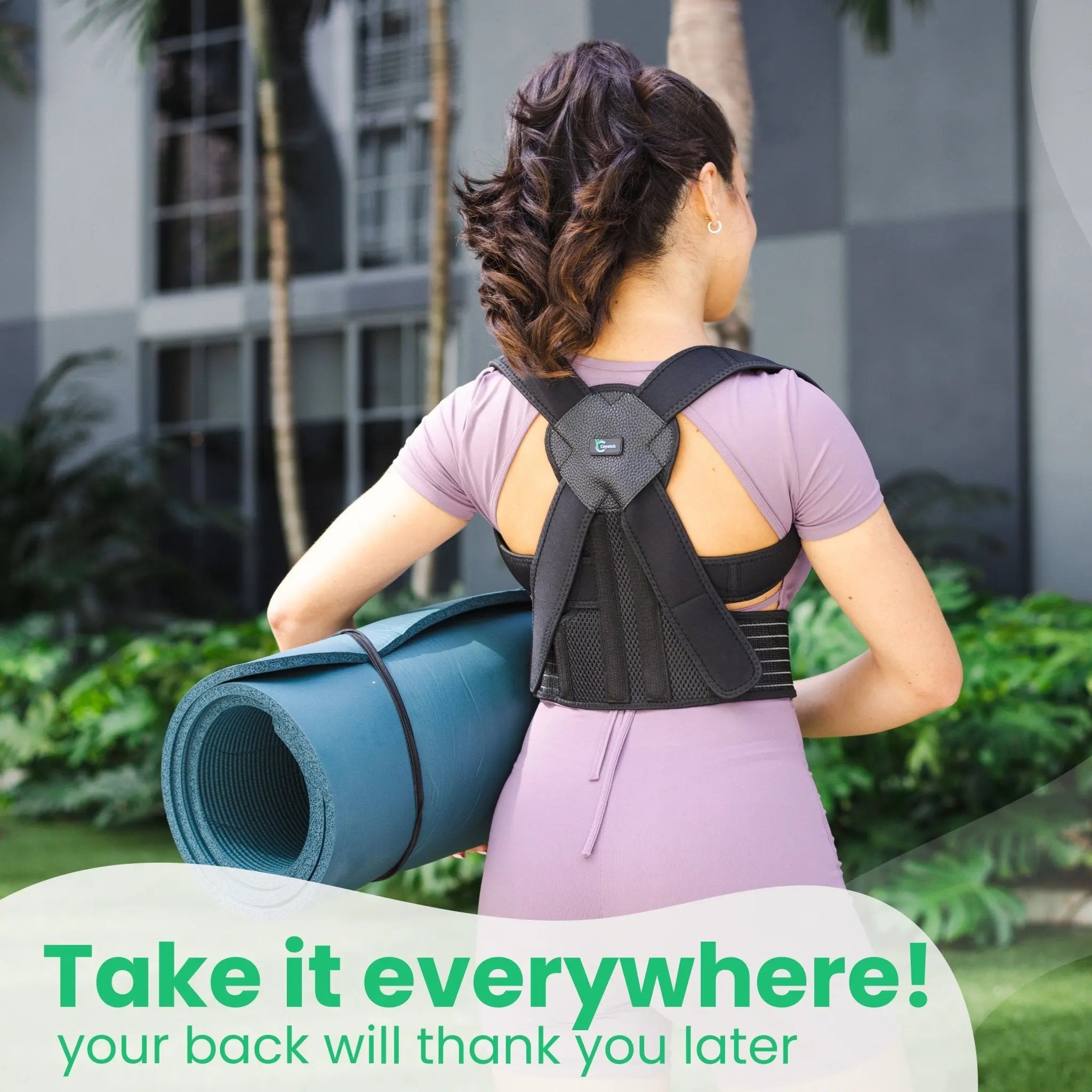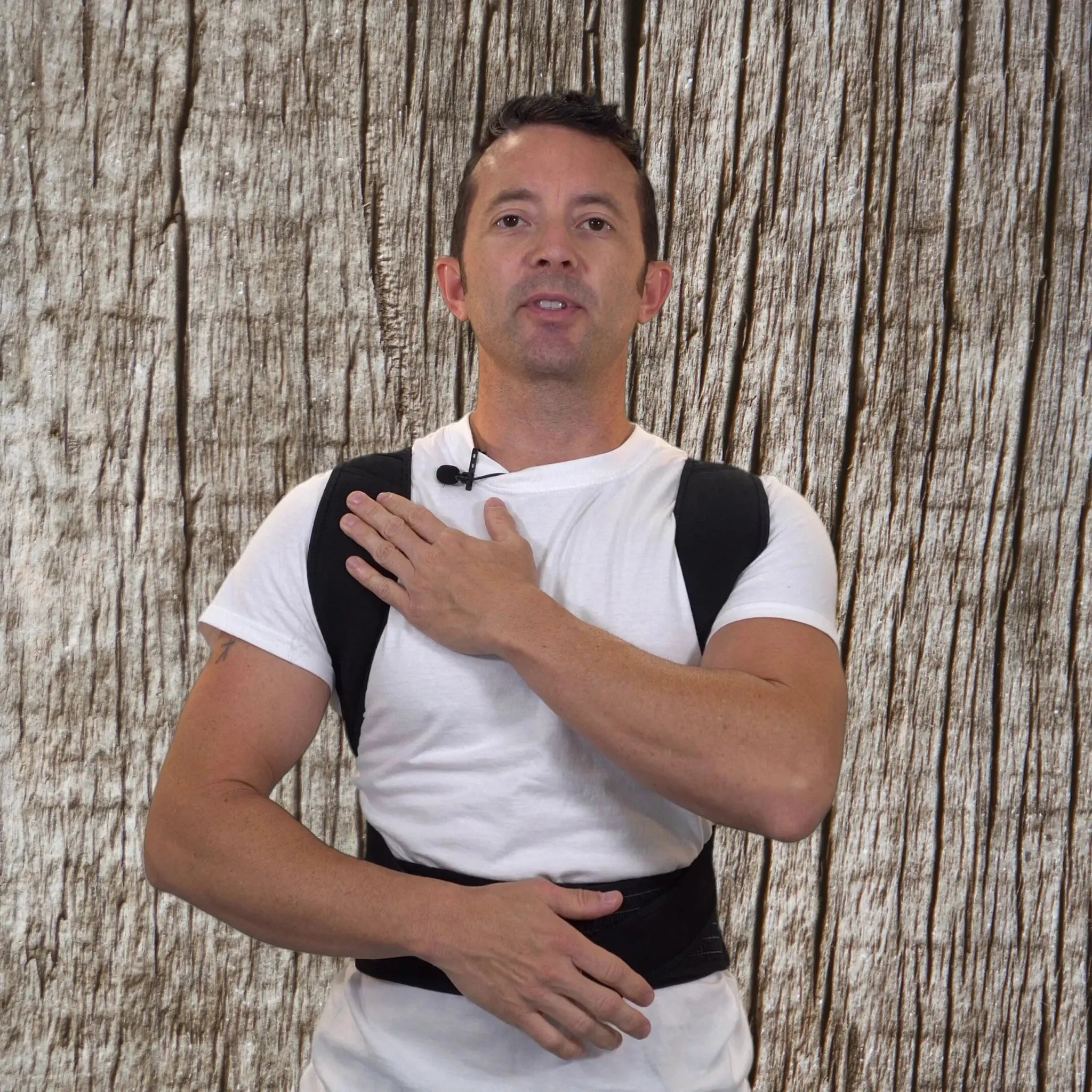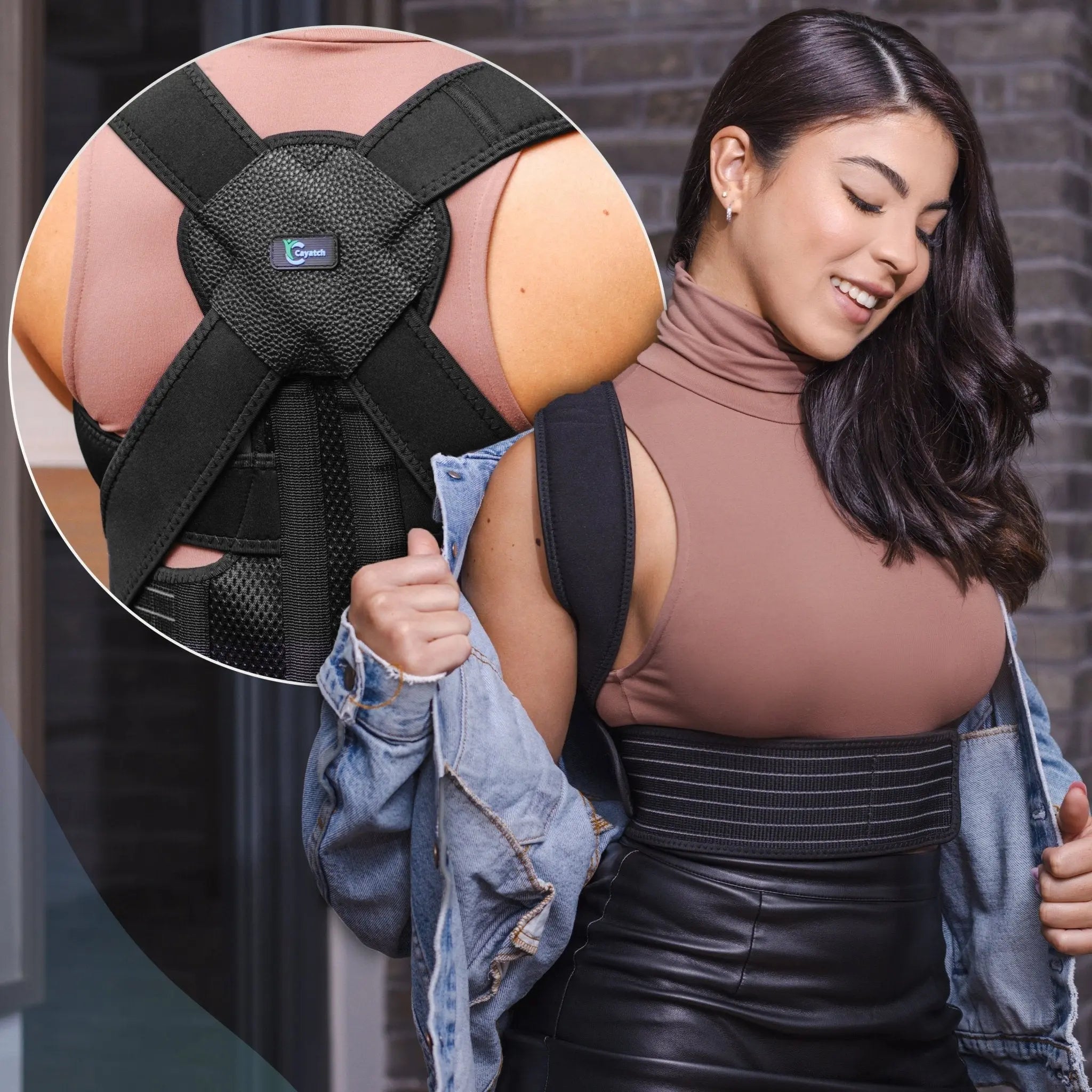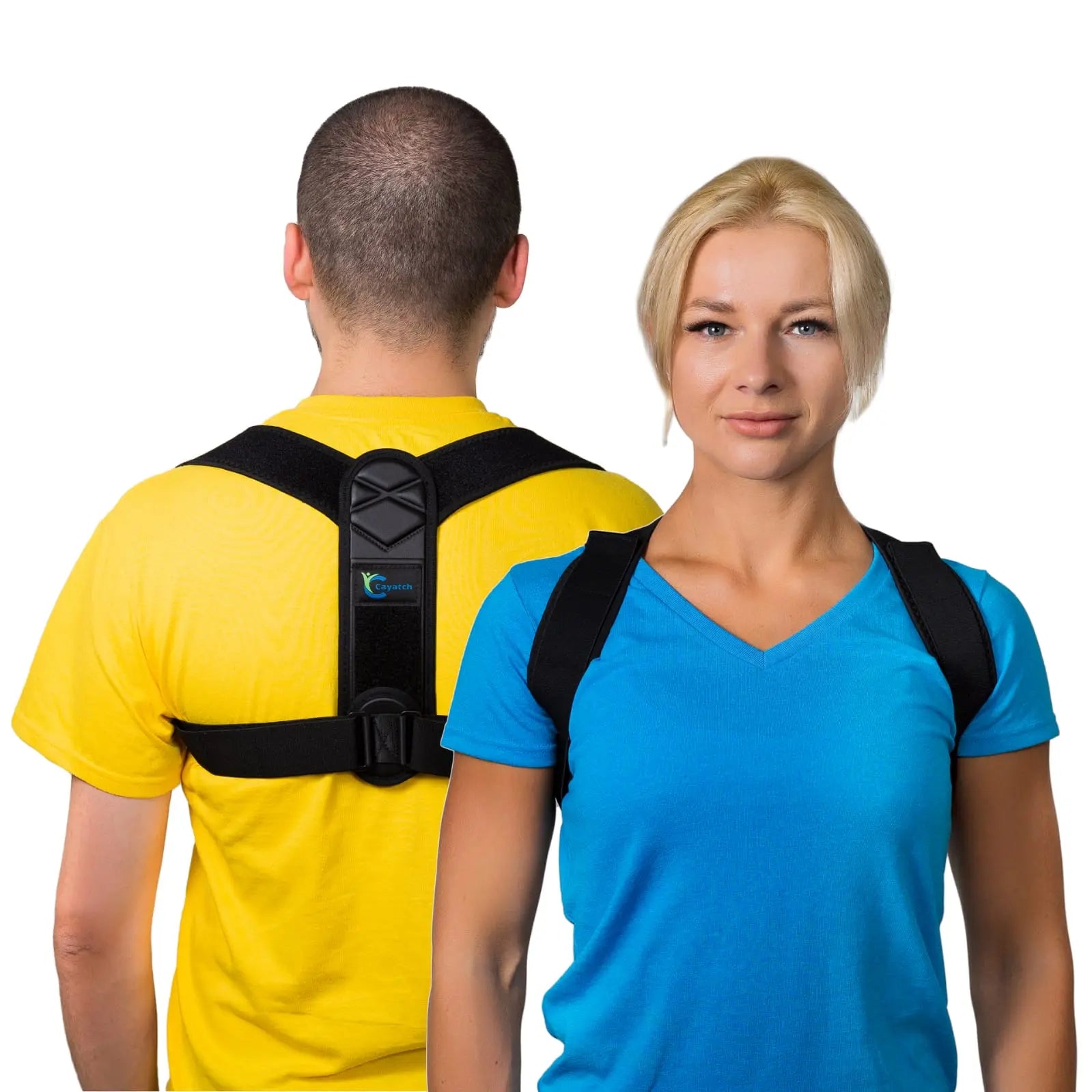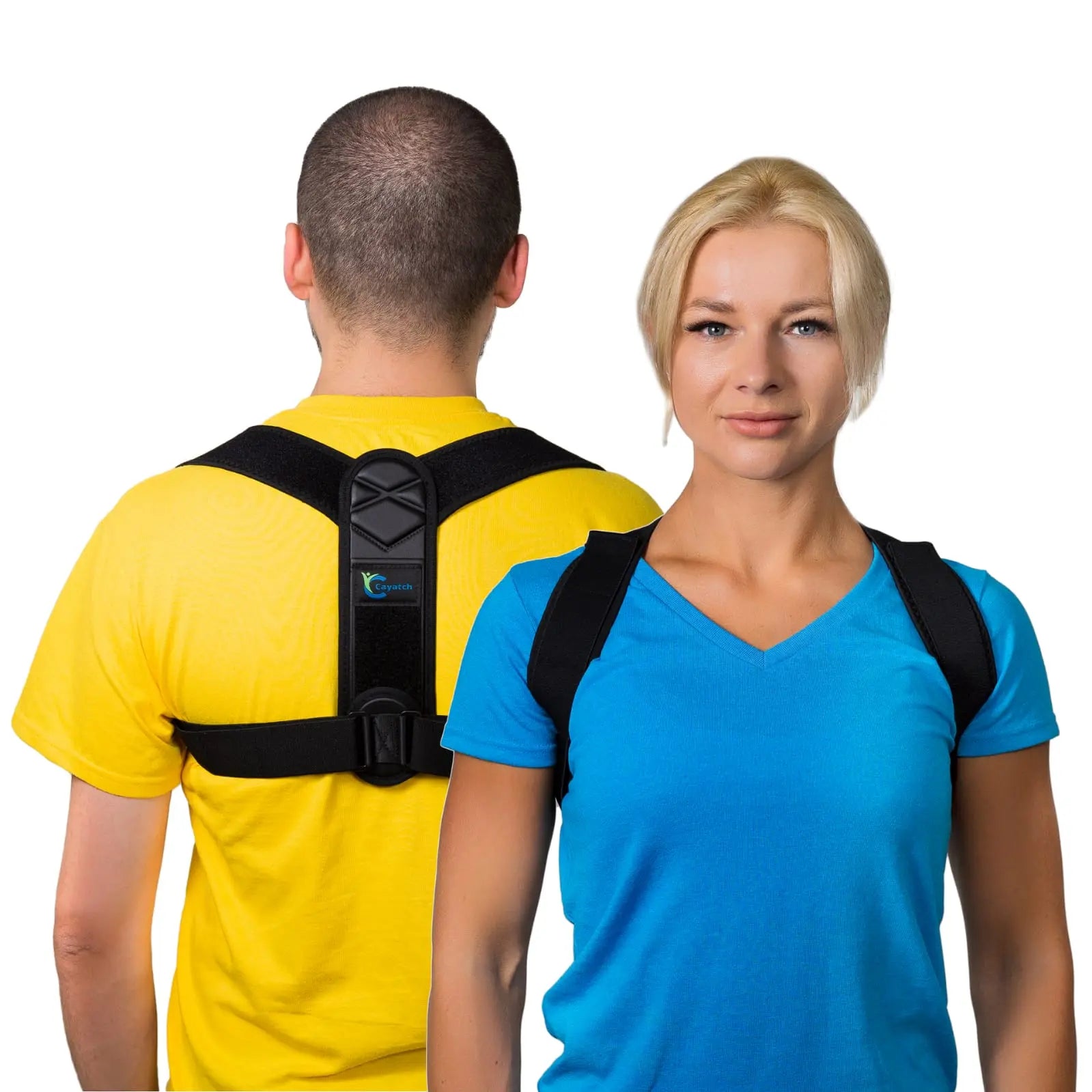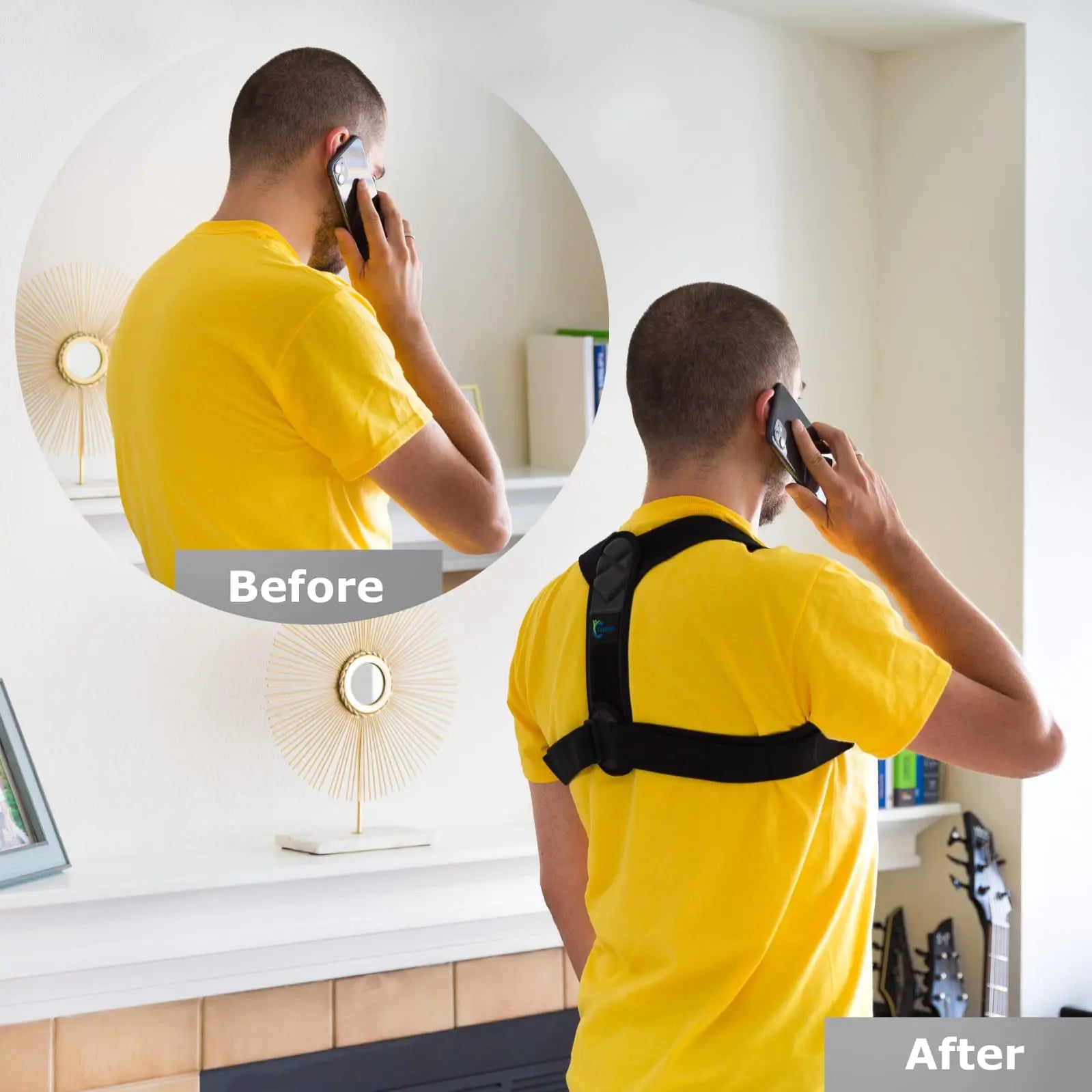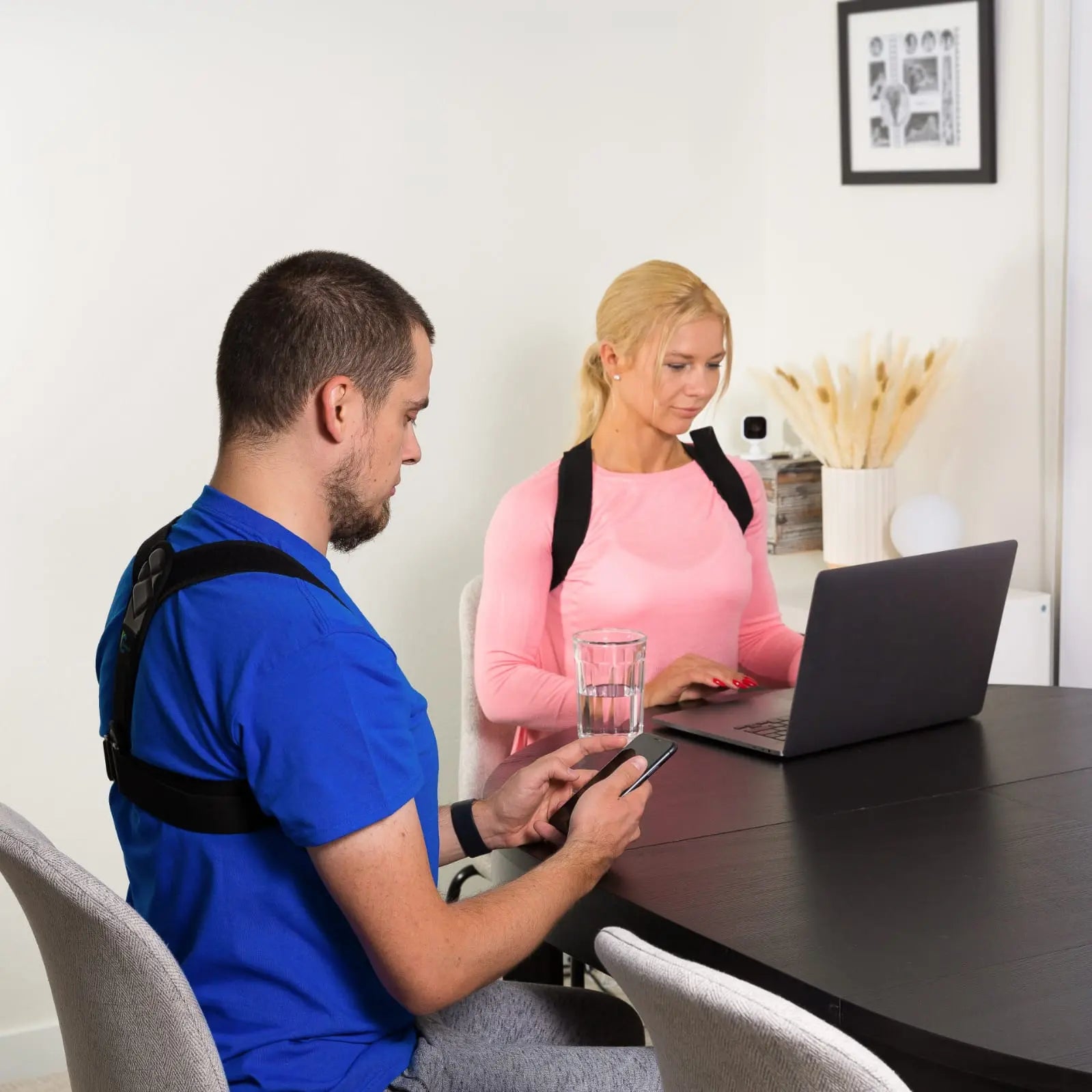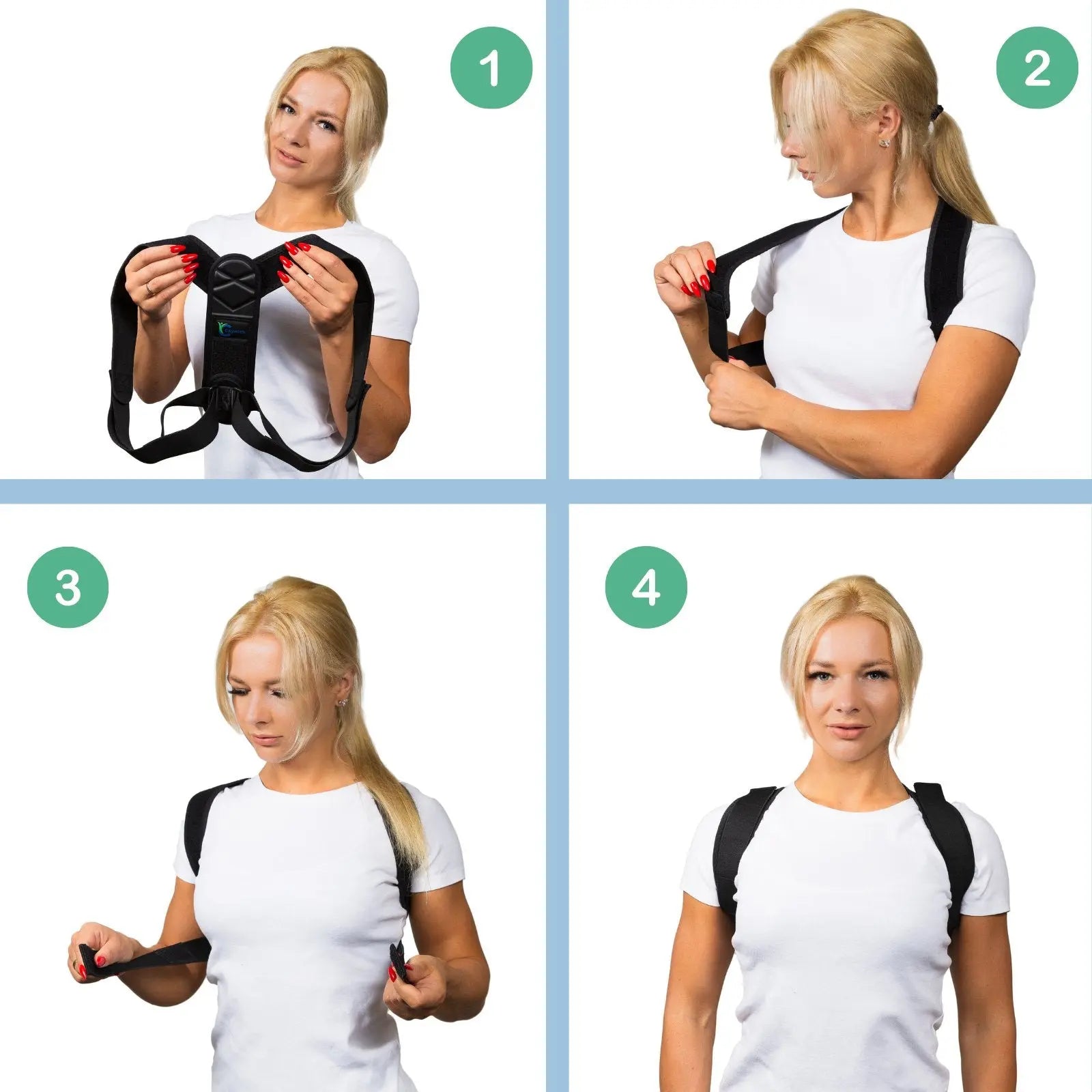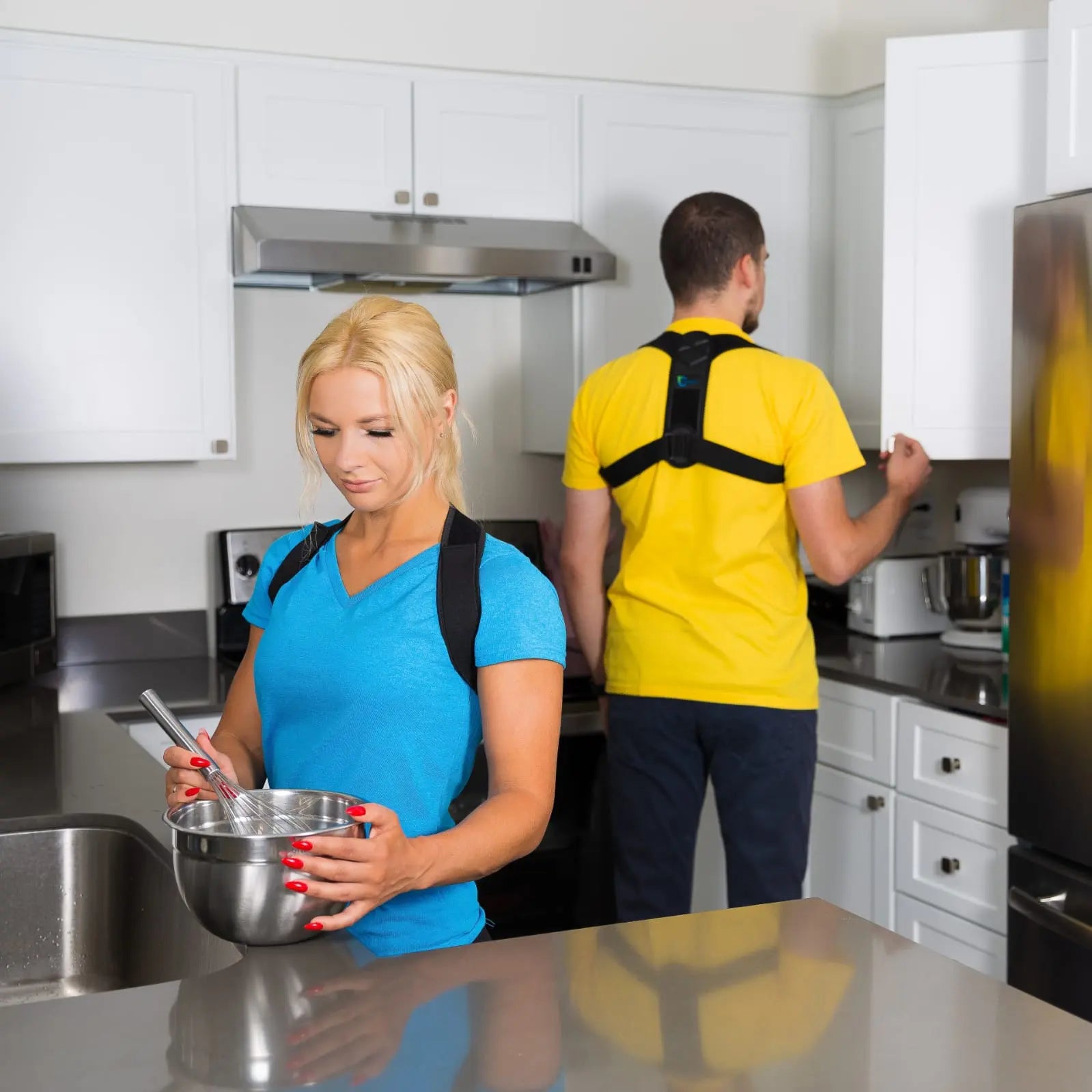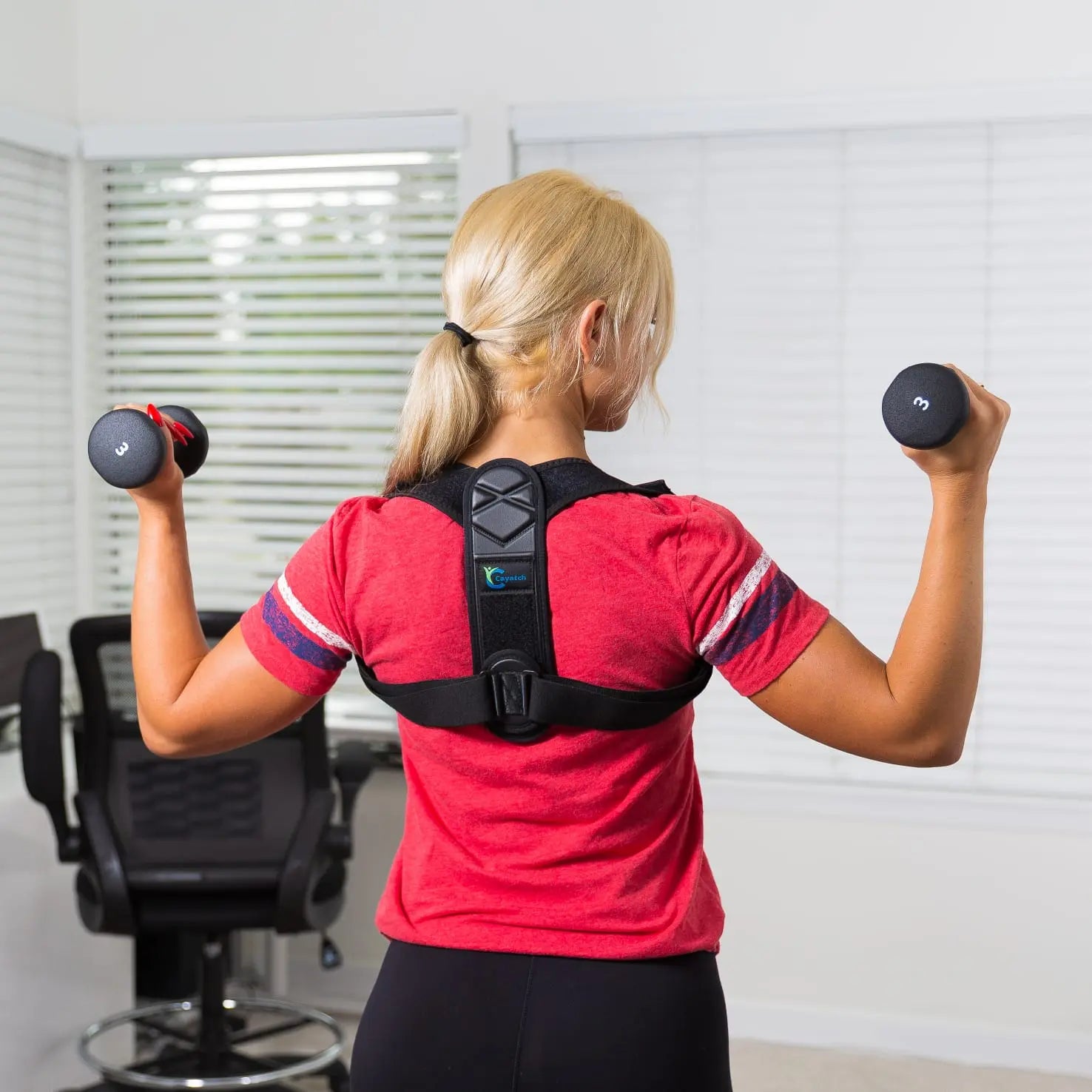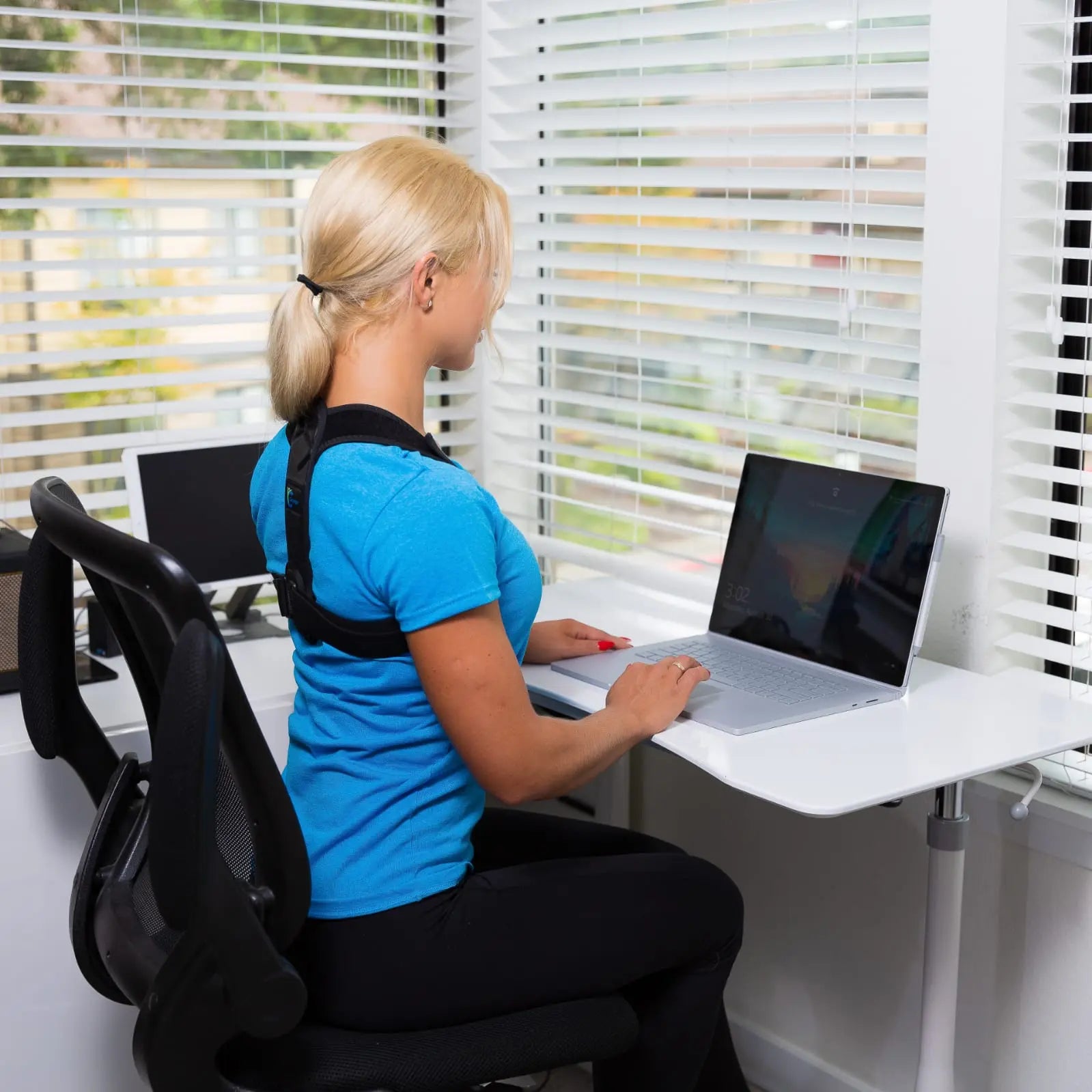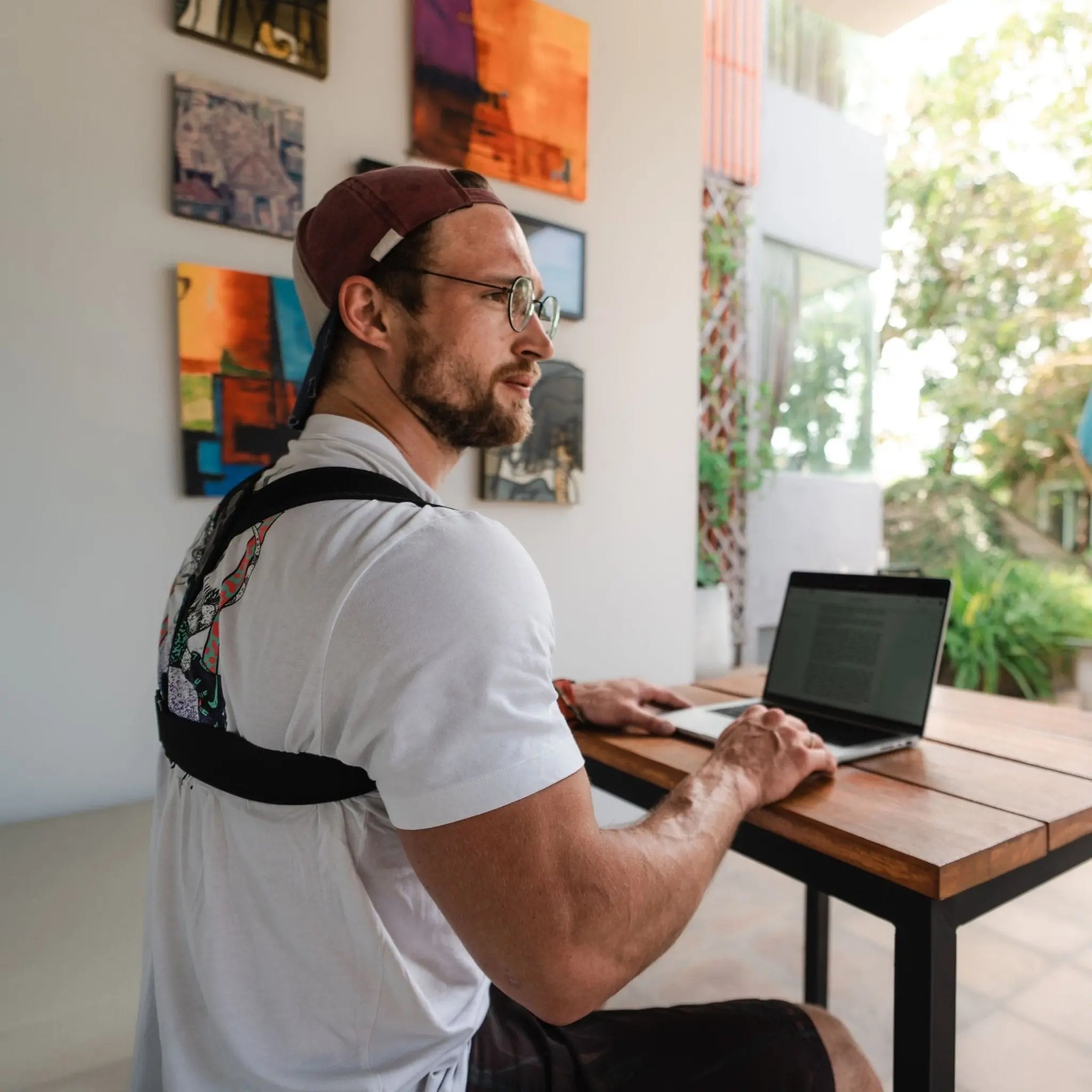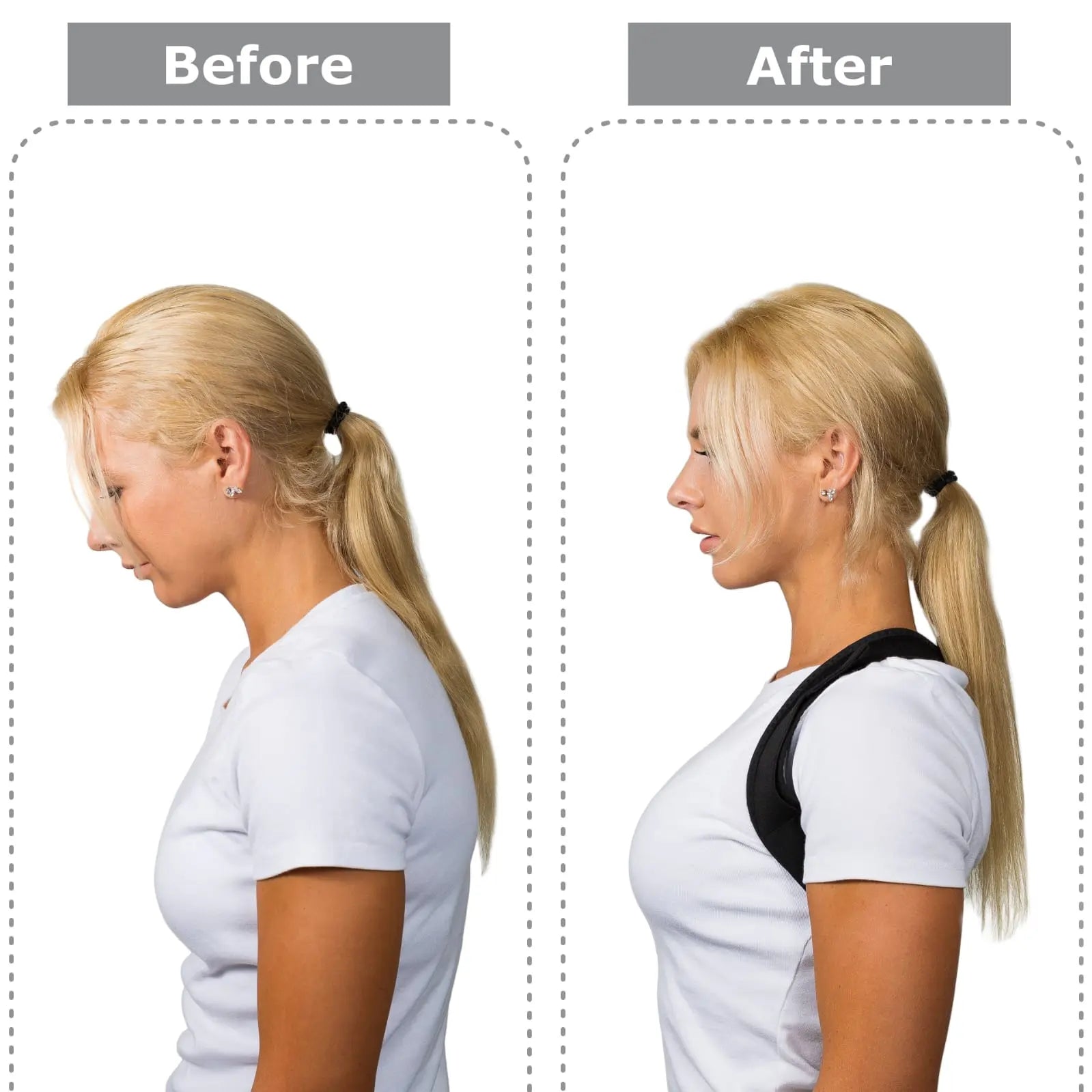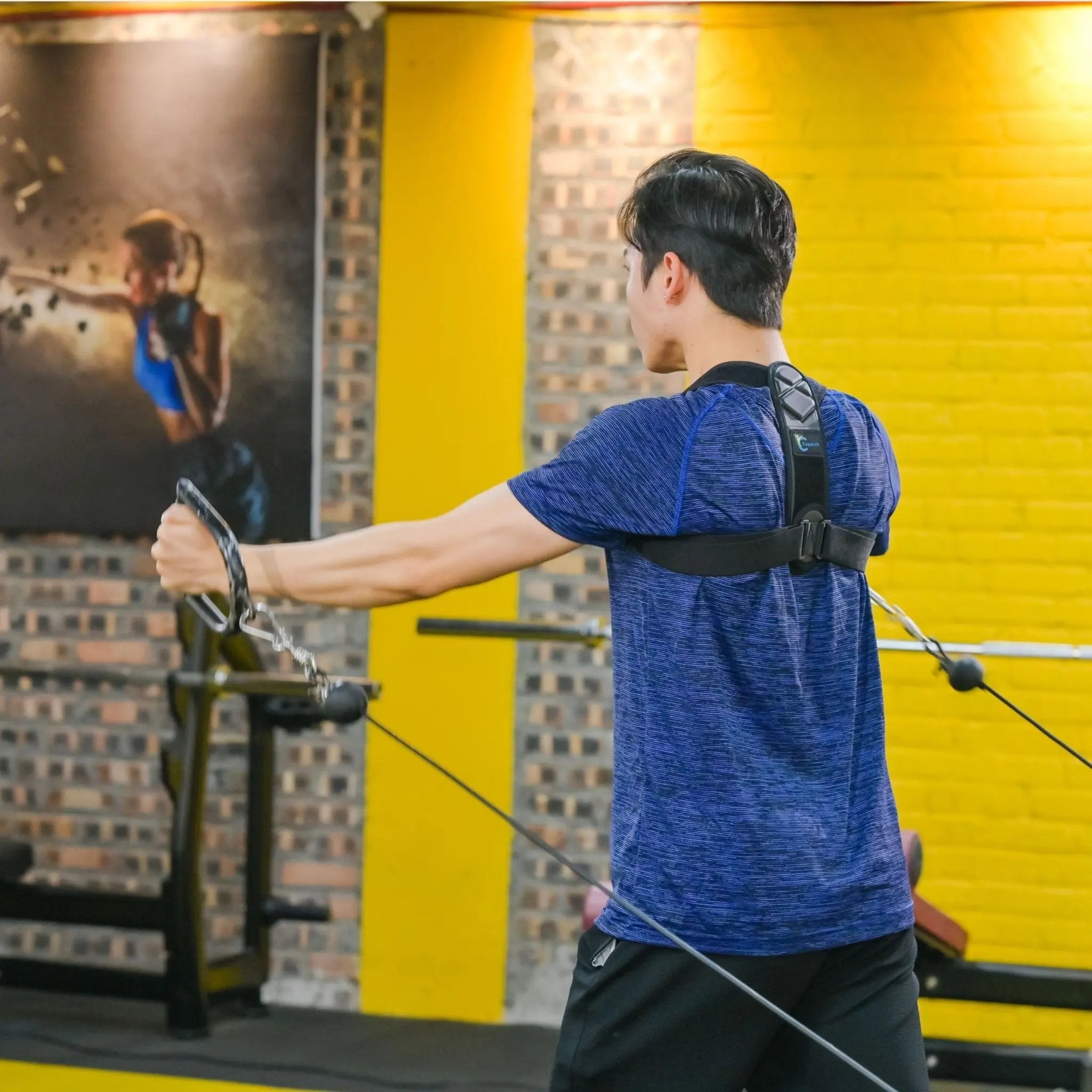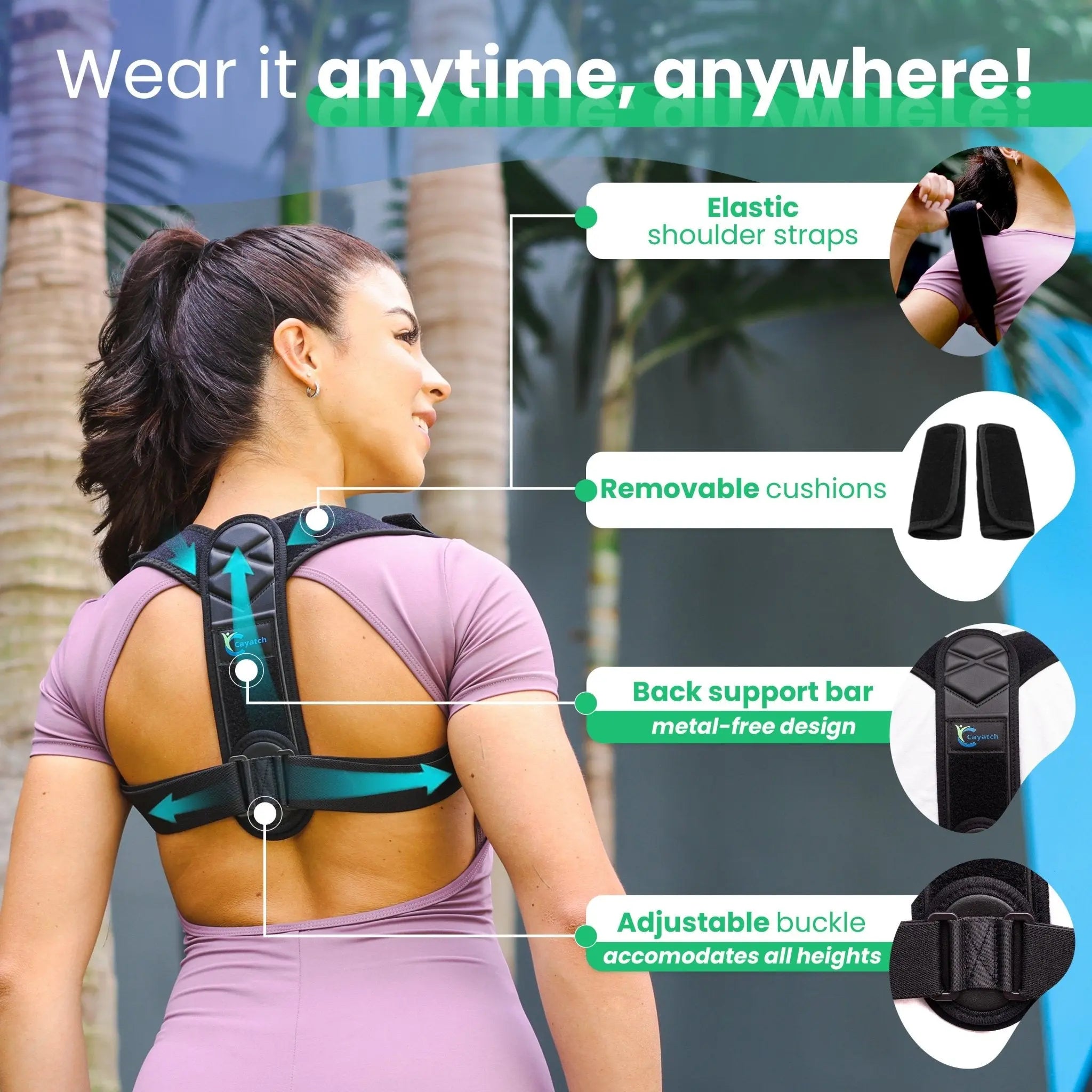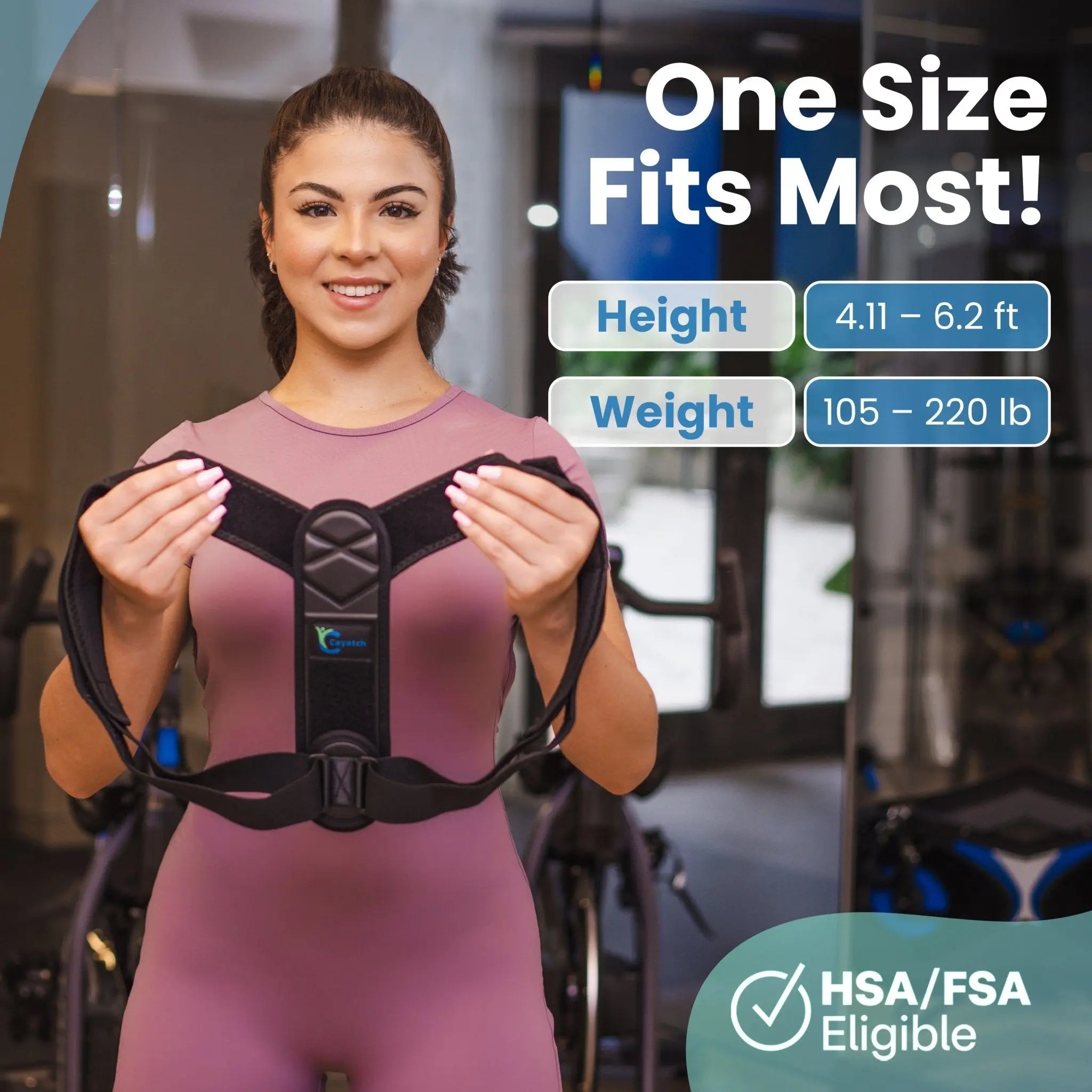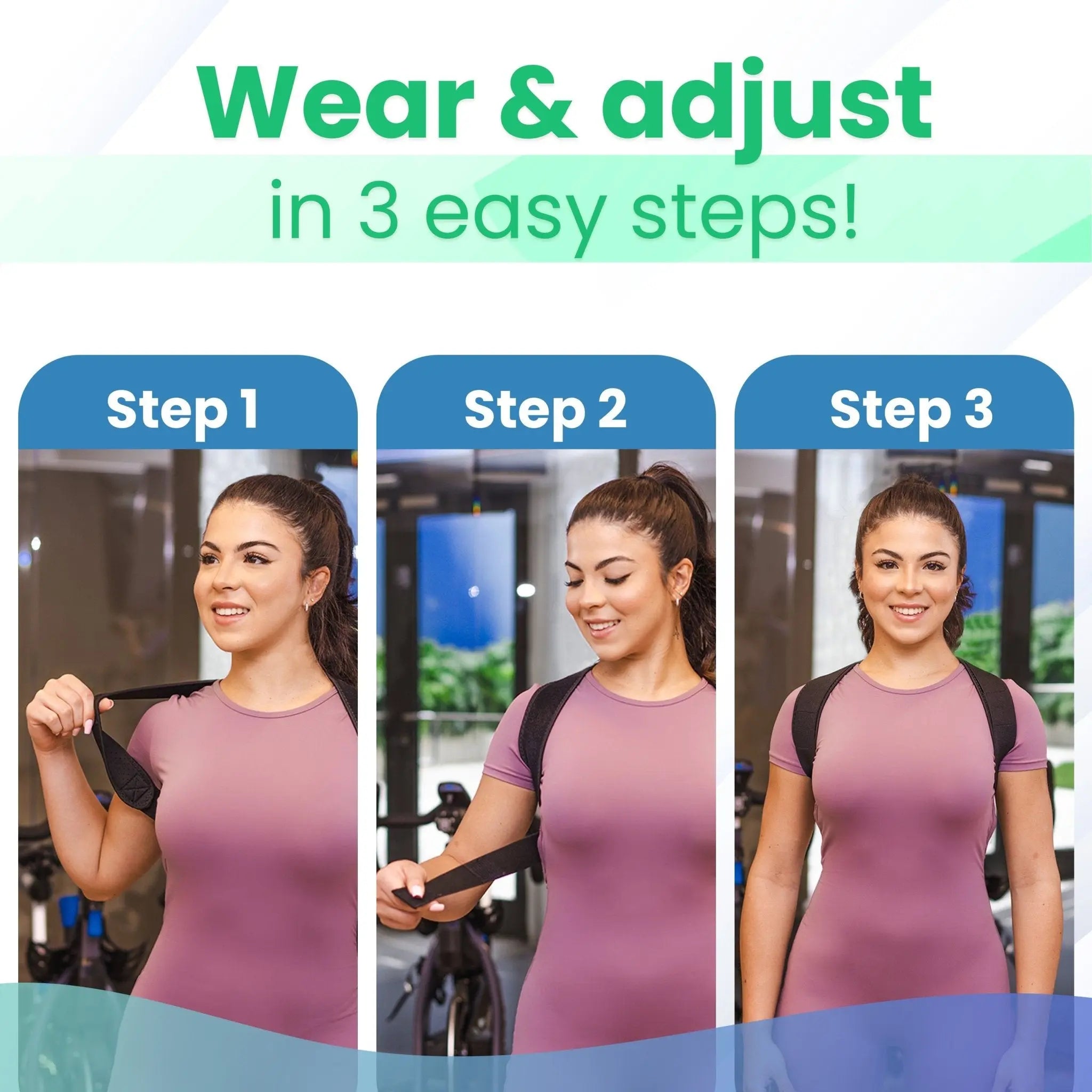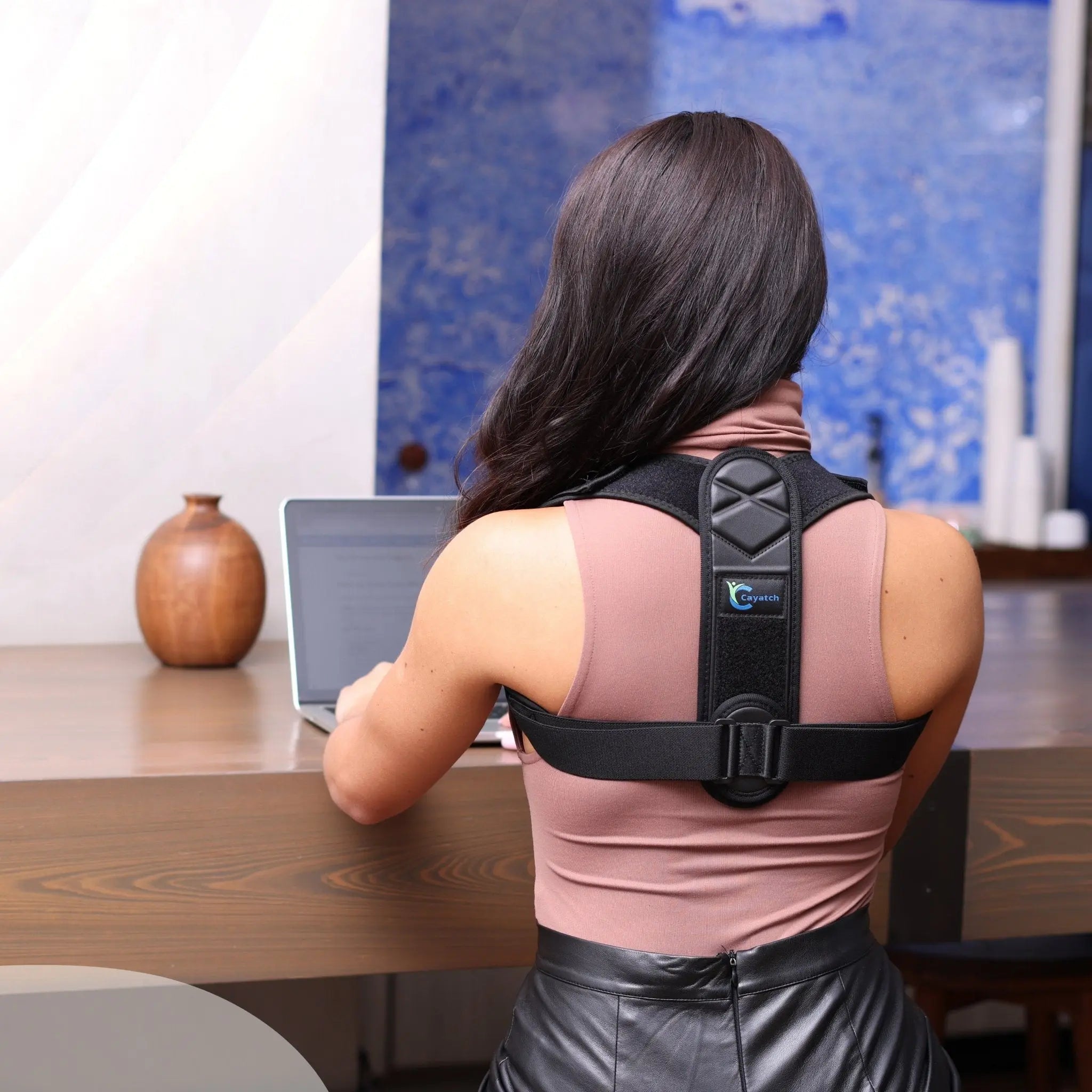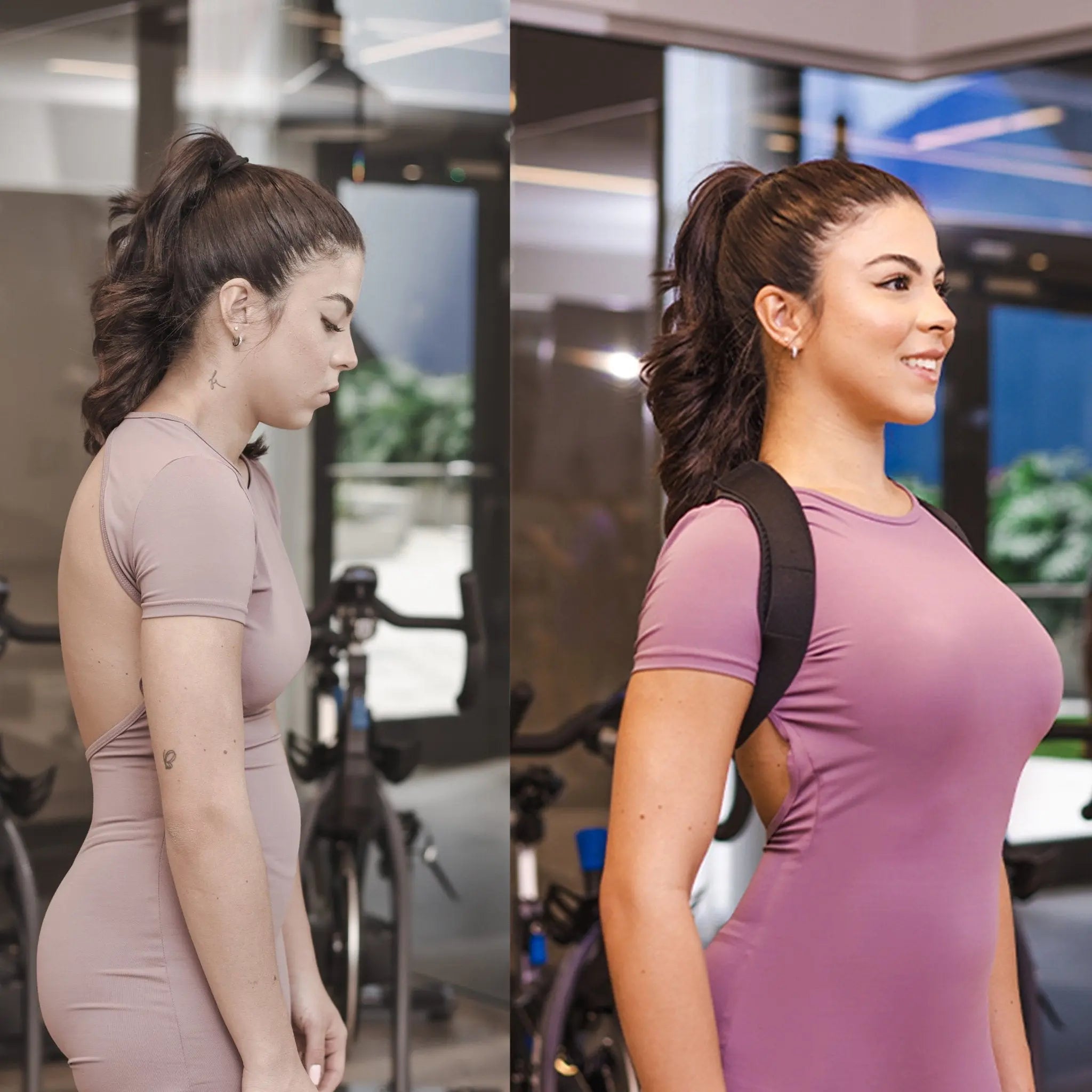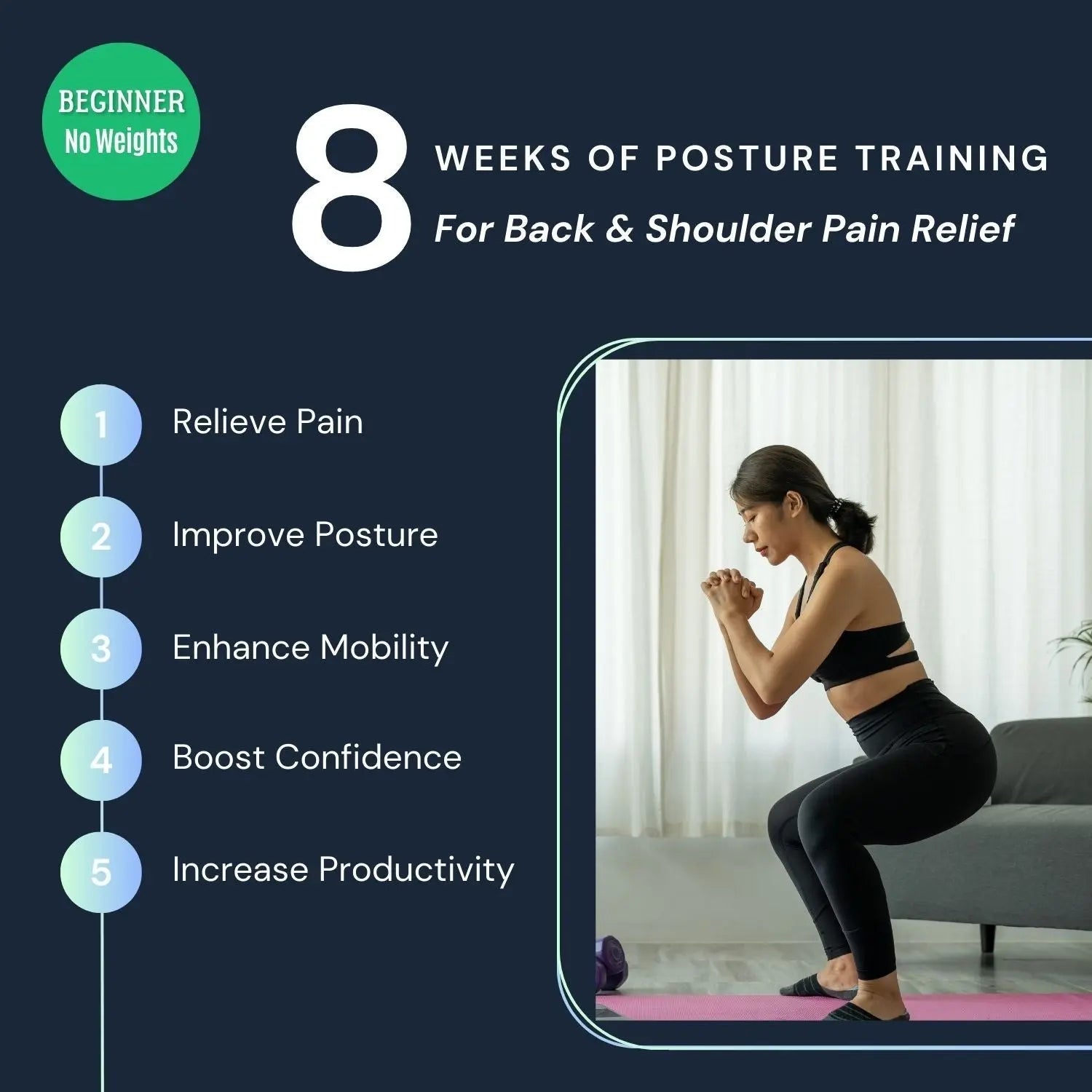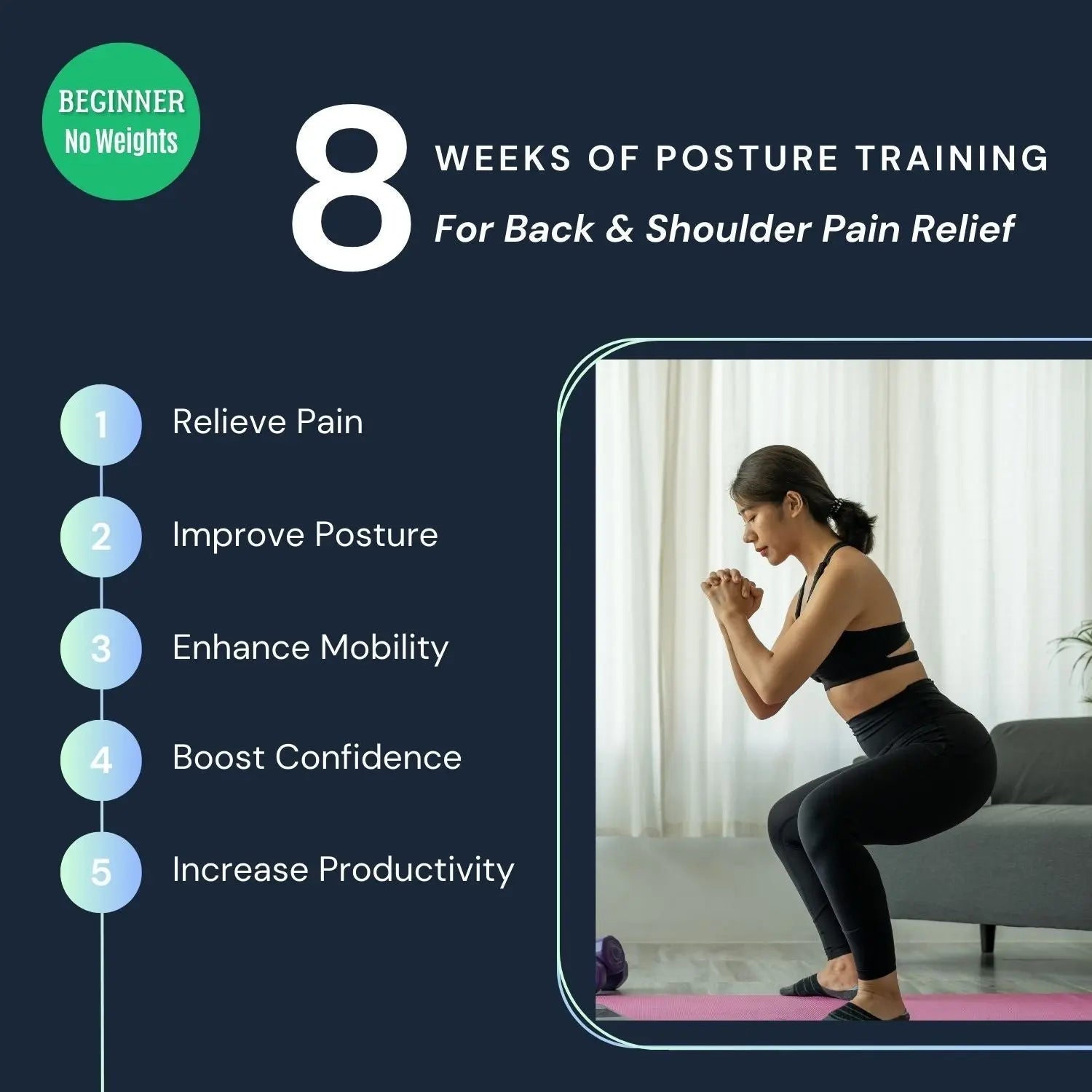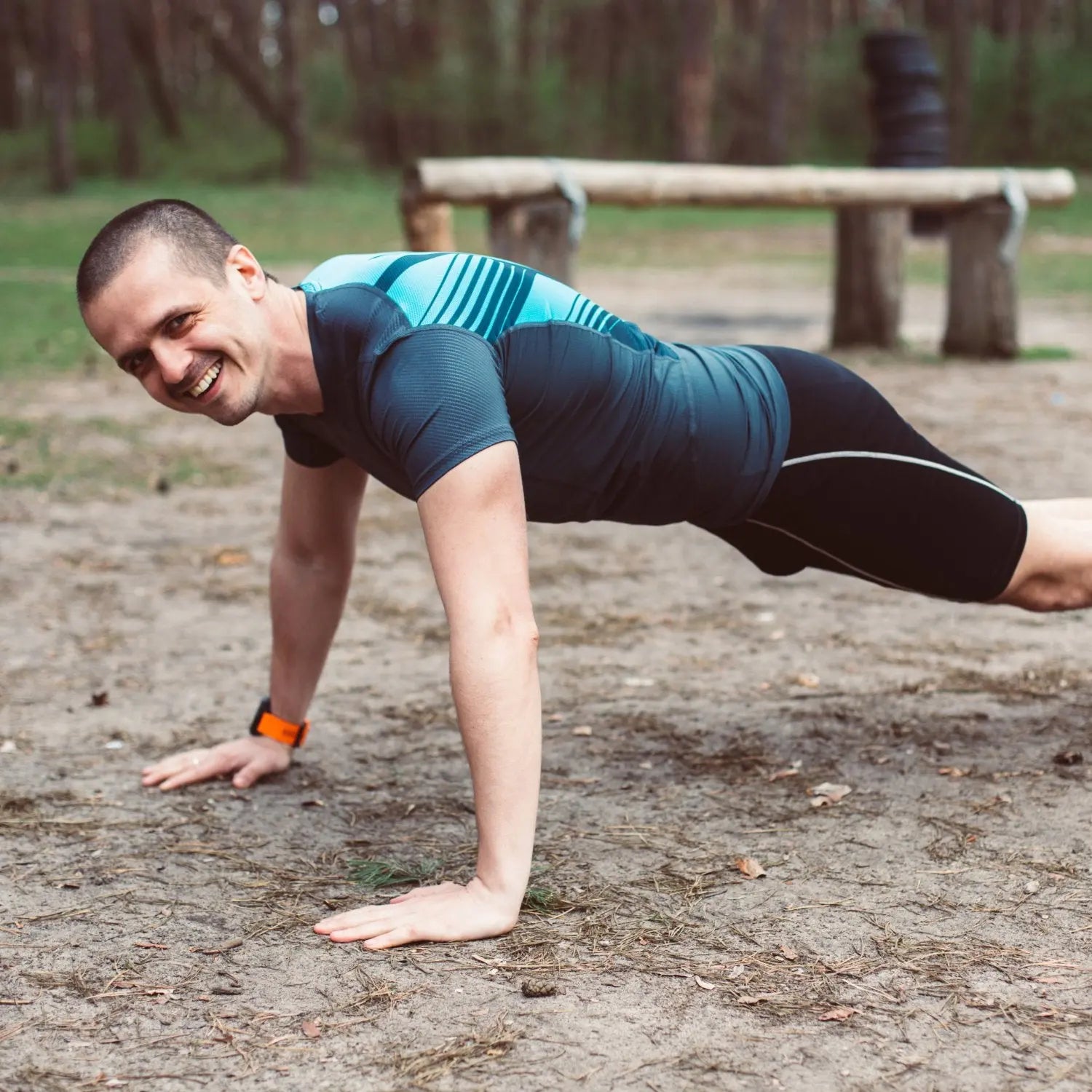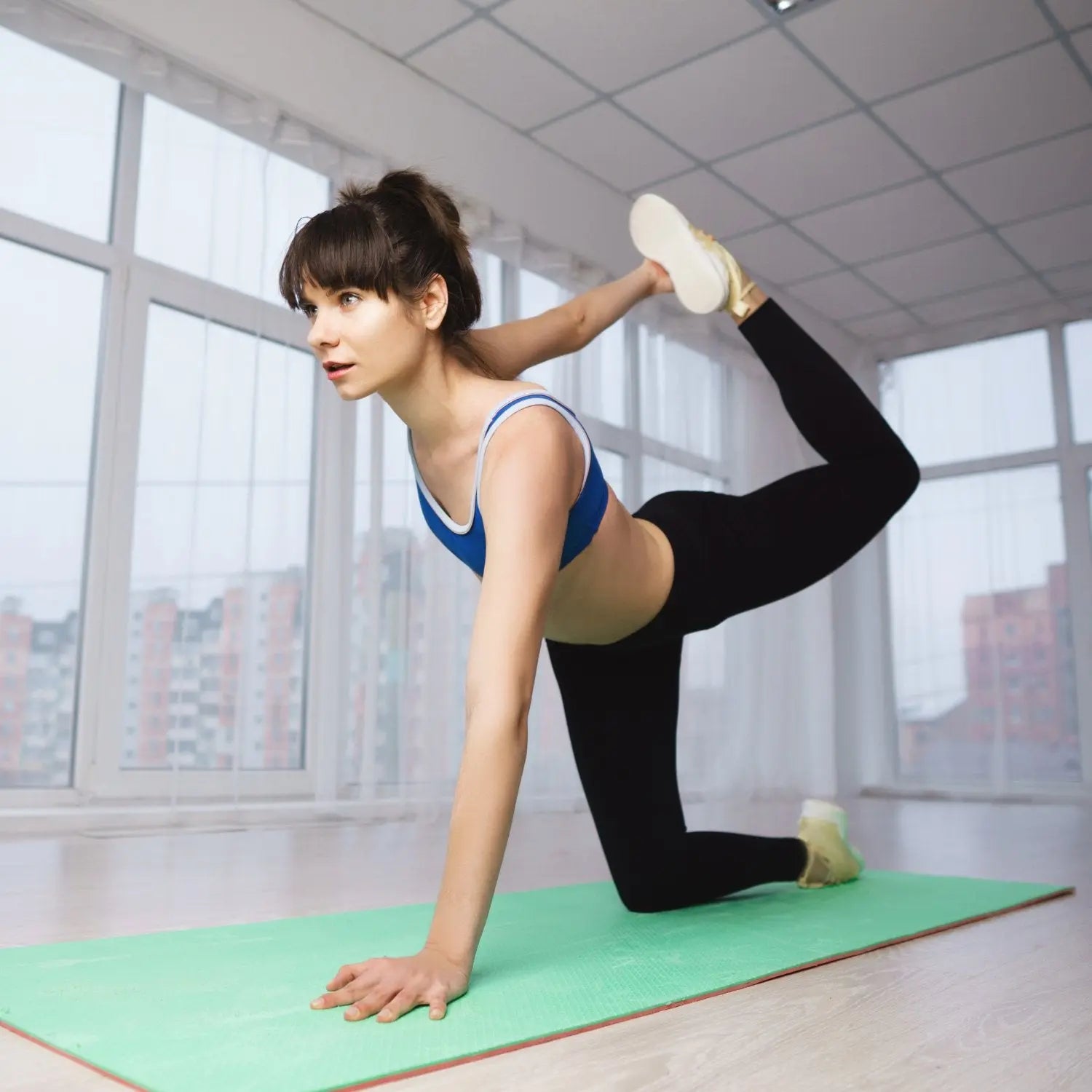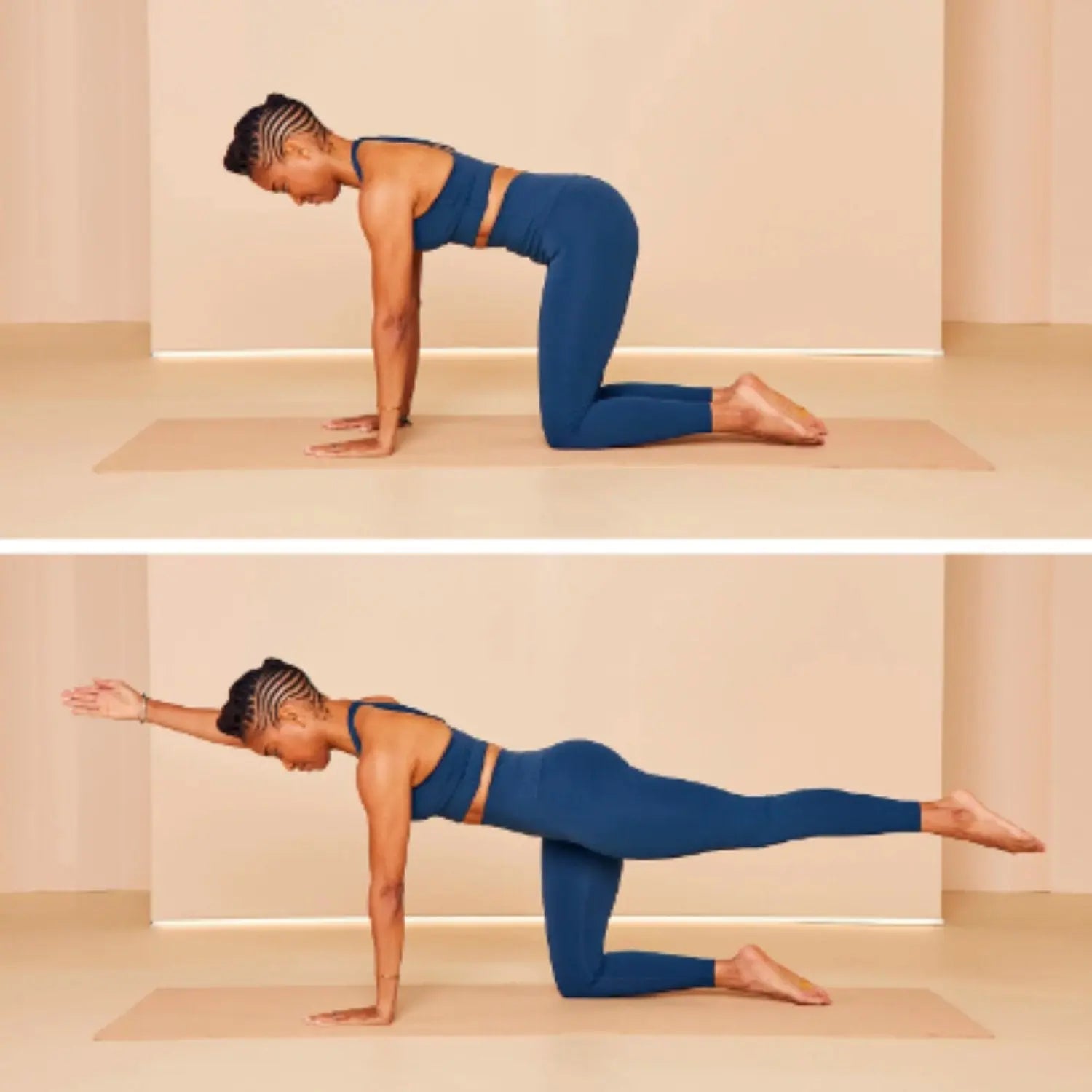Holistic Posture Correction: Combining Osteopathic and Alternative Medicine with Behavioral Strategies

Maintaining good posture often takes a backseat in the hustle of modern life. Beyond etiquette and aesthetics, it's a cornerstone of overall health, influencing everything from musculoskeletal well-being to mental health.
Poor posture, often adopted unconsciously, can lead to chronic discomfort, reduced mobility, and even impact mental well-being. Recognizing this, a holistic approach becomes crucial, blending osteopathic practices, alternative therapies, and behavioral strategies.
This journey delves into the interconnected realms of physical, mental, and energetic well-being, offering insights to empower individuals on their path to a balanced and harmonious posture.
Welcome to a holistic exploration that goes beyond the surface, recognizing posture as a key player in the intricate dance of our overall health.
Understanding Good Posture: The Key to Well-Being
Standing up straight is only one aspect of good posture; another is positioning your body to work as efficiently as possible. Think of your body as a sophisticated machine, an equilibrium, with each and every component serving and supporting the others.
With proper posture, the body weight is equally distributed across both feet, the shoulders are relaxed, and the spine is in alignment with the head, neck, and shoulders and the overall body structure. Your body is in balance in this state, which lessens the strain on your joints and muscles.
Common Posture Issues and Their Causes
Understanding good posture also involves recognizing common issues that can arise. Some of these issues include:
- Forward Head Posture: Often caused by prolonged screen time, this is characterized by the head leaning forward, straining the neck and shoulders.
- Rounded Shoulders: Linked to sedentary lifestyles, this occurs when the shoulders slouch forward, leading to muscle imbalances.
- Swayback Posture: Exaggerated arching of the lower back, often a result of poor sitting habits and muscle imbalances.
These issues can stem from various factors, including prolonged sitting, improper ergonomics, and muscular weaknesses. Understanding the root causes is crucial in devising effective strategies for correction.
Posture and Your Overall Health:
Posture is not merely a physical stance; it's deeply interconnected with our overall health. Consider the following:
- Musculoskeletal Harmony: Good posture ensures that the bones and joints are aligned, reducing the risk of strain and injury.
- Organ Function: Proper posture aids in optimal organ function, as it allows organs to maintain their intended positions without compression.
- Energy Flow: Posture influences energy flow within the body, as seen in practices like yoga and acupuncture, where specific postures or points are targeted to enhance energy circulation.
Recognizing that posture is a dynamic part of our holistic well-being encourages us to address it not as an isolated aspect but as an integral component of our overall health journey.
Osteopathic Perspective on Posture: A Holistic Approach to Alignment

Osteopathy is a holistic approach to healthcare that emphasizes the interconnectedness of the body's structure and function. Osteopaths view the body as a unit, where proper alignment and balance are essential for optimal health.
The principles of osteopathy acknowledge the body's ability to self-heal and self-regulate when given the right conditions. This approach considers not only the symptoms but also the underlying causes, making it particularly valuable in addressing posture issues.
The Role of the Musculoskeletal System in Posture
At the heart of the osteopathic perspective on posture is the understanding that the musculoskeletal system plays a pivotal role. The spine, muscles, and joints work together to maintain balance, and any disruptions can impact posture.
Osteopaths recognize that imbalances in the musculoskeletal system can result from various factors, such as trauma, stress, or poor ergonomics. By addressing these underlying issues, osteopathy aims to restore harmony to the musculoskeletal system, thereby positively influencing posture.
Osteopathic Techniques for Assessing and Correcting Posture
Osteopathic practitioners employ a range of hands-on techniques to assess and correct posture issues. These techniques may include:
- Soft Tissue Manipulation: Addressing tight muscles and fascia to improve flexibility and range of motion.
- Articulatory Techniques: Gently moving joints through their natural range to enhance mobility.
- Visceral Manipulation: Considering the influence of internal organs on posture and using gentle techniques to optimize organ function.
Osteopaths perform a thorough assessment to understand the patient's unique structural dynamics. The treatment plan is tailored to address specific imbalances, promoting not just symptom relief but a holistic improvement in posture and overall well-being.
Through this hands-on and personalized approach, osteopathy stands as a key player in the journey toward achieving optimal posture.
Alternative Medicine Approaches: Nurturing Posture through Holistic Practices
In the quest for holistic posture correction, alternative therapies emerge as powerful allies. These modalities recognize that the body is a complex network of interconnected systems, and addressing posture involves more than just structural adjustments.
Alternative approaches prioritize harmony between the physical, mental, and energetic aspects of our being.
Yoga and Pilates: Aligning the Body Through Movement:

Yoga and Pilates stand out as dynamic practices that go beyond mere physical exercise. Rooted in mindful movement, these disciplines emphasize the integration of breath, balance, and flexibility. Yoga, with its diverse poses or "asanas," promotes spinal alignment and strengthens core muscles.
Similarly, Pilates focuses on core strength, fostering stability and balance. Both disciplines not only correct existing posture issues but also cultivate body awareness, empowering individuals to maintain proper alignment in their daily lives.
Acupuncture and Chiropractic Care:
Acupuncture and chiropractic care offer unique perspectives on posture correction by addressing energy flow and spinal alignment. Acupuncture, rooted in traditional Chinese medicine, involves the insertion of thin needles into specific points to stimulate energy flow or "qi." This approach recognizes that imbalances in energy can manifest as physical issues, including posture problems.
Chiropractic care, on the other hand, focuses on spinal adjustments to enhance nerve function and restore proper alignment. By aligning the spine, chiropractors aim to alleviate not only pain but also improve posture and overall well-being.
Massage Therapy
Massage therapy emerges as a soothing and effective alternative in the journey toward better posture. Through the manipulation of soft tissues, massage therapists alleviate muscle tension, enhance circulation, and improve flexibility. Tight muscles, often a result of poor posture habits, can be gently released through various massage techniques.
Beyond its physical benefits, massage therapy contributes to stress reduction, fostering a relaxed state of mind that complements the posture correction process.
In embracing alternative medicine approaches, individuals find a diverse toolkit to address posture issues holistically. Whether through mindful movement, energy balancing, or hands-on therapies, these modalities empower individuals to take an active role in cultivating balanced and harmonious posture.
Holistic Strategies for Posture Improvement: A Tailored Path to Well-Being
Holistic posture improvement embraces a synergistic blend of osteopathic and alternative medicine approaches. Recognizing that each individual's body and health journey are unique, this integration offers a comprehensive toolkit for addressing posture issues.
Osteopathic principles, emphasizing the interplay of structure and function, seamlessly combine with alternative therapies such as yoga, acupuncture, and chiropractic care.
By integrating these diverse approaches, individuals gain a nuanced understanding of their bodies, paving the way for a more effective and personalized posture correction journey.
Customizing a Holistic Posture Correction Plan:
One size doesn't fit all when it comes to posture correction, and holistic strategies prioritize customization. A personalized posture correction plan considers not only the physical aspects of alignment but also the mental and emotional dimensions. Osteopathic assessments, alternative therapy insights, and individual goals converge to create a roadmap tailored to address specific imbalances.
This customization ensures that the posture correction journey aligns with an individual's lifestyle, preferences, and unique health considerations, fostering a sustainable path to improved well-being.
Importance of a Multidisciplinary Approach:
The multidisciplinary nature of holistic posture correction underscores the interconnectedness of various health modalities. Rather than relying on a single approach, a multidisciplinary strategy recognizes that posture is influenced by numerous factors, including musculoskeletal health, energy flow, and mental well-being.
Integrating osteopathy, alternative therapies, behavioral strategies, and even ergonomic considerations offers a more holistic view of posture. This collaborative approach empowers individuals to address not only the symptoms but also the root causes of posture issues, fostering comprehensive and lasting improvements.
In embracing holistic strategies, individuals embark on a nuanced journey towards better posture that goes beyond superficial adjustments. By weaving together insights from different health disciplines, customization becomes the cornerstone, ensuring that the path to improved posture aligns harmoniously with each individual's unique needs and aspirations.
Exercises for Posture Improvement: Building Strength and Flexibility
Strengthening Exercises for Core Muscles:
A strong core forms the bedrock of good posture, providing the stability needed to maintain proper alignment. Incorporating targeted core-strengthening exercises into your routine can make a substantial difference.
- Planks: Start with forearm planks, holding for 30 seconds, and gradually increase duration.
- Bridges: Lie on your back, lift your hips toward the ceiling, engaging your core and buttocks.
- Russian Twists: Seated or lying down, rotate your torso from side to side, engaging the obliques.
Building core strength not only supports your spine but also helps prevent the development of muscular imbalances that can contribute to poor posture.
Stretching Routines to Enhance Flexibility:
Flexibility is equally vital in the quest for better posture. Regular stretching routines can enhance the flexibility of muscles and joints, promoting a wider range of motion and preventing stiffness. Consider incorporating the following stretches:
- Chest Opener Stretch: Interlace your fingers behind your back and open your chest, squeezing your shoulder blades together.
- Child's Pose: A yoga pose that stretches the back and shoulders while promoting relaxation.
- Hip Flexor Stretch: Kneel with one foot forward, gently pushing your hips forward to stretch the hip flexors.
Regular stretching not only increases flexibility but also contributes to a sense of overall well-being, reducing tension in muscles that may impact posture.
Incorporating Daily Exercises into a Holistic Posture Correction Plan:
Making exercise a daily habit is key to holistic posture improvement. Here's how you can seamlessly integrate exercises into your routine:
- Morning Stretch Routine: Begin your day with a series of gentle stretches to awaken your muscles and promote flexibility.
- Desk Exercise Breaks: Incorporate short exercise breaks throughout the day, including seated stretches and core-strengthening exercises.
- Evening Release: Wind down with a relaxing evening routine, focusing on stretches that alleviate tension built up during the day.
By weaving these exercises into your daily life, you not only target specific areas related to posture but also foster a holistic approach that supports overall well-being. Consistency is key, so start gradually and adjust your routine as your strength and flexibility improve.
In the journey toward optimal posture, the holistic approach emerges as a guiding light, intertwining insights from osteopathy, alternative therapies, behavioral strategies, and targeted exercises.
Final Notes
As we conclude this exploration, the invitation is extended to readers to take a proactive stance in their posture correction journey. Embrace the diversity of approaches presented here, recognizing that a one-size-fits-all solution doesn't do justice to the complexity of our bodies.
Engage in osteopathic assessments, explore alternative therapies, adopt mindful exercises, and weave these practices into your daily life. The power lies in the amalgamation of these approaches, creating a customized and sustainable plan that resonates with your unique needs.
The journey toward good posture is not just a momentary adjustment but a lifelong investment in your well-being. Beyond the immediate relief from aches and pains, maintaining good posture contributes to the longevity and vitality of your body. It's a holistic commitment that ripples through your musculoskeletal system, energy pathways, and mental resilience.
As you stand tall and aligned, you are not just correcting posture; you are nurturing a foundation for enduring health and well-being. Embrace this journey with patience and dedication, and witness the transformative power of holistic posture correction unfold in your life.









